Internationally renowned Artist Bharti Kher brings new exhibition to Arnolfini

Powerful portraits
Pink Lady® Food Photographer of the Year returns to the RPS
First voice heard on air
Journalist Michael Buerk on his time at BBC Radio Bristol
The rise of women’s rugby
Bristol Bears Women on the future of the sport
Artwork by Xenz on show at Harvey Nichols Bristol
THEBRISTOLMAG.CO.UK £4.25 where sold PLUS... Issue 216 I NOVeMBeR 2022THE MAGAZINE SO MUCH MORE IN THE CITY’S BIGGEST GUIDE TO LIVING IN BRISTOL


BODY IS A PLACE
& EXHIBITIONS


WINTER WONDERS
TANTALISING THAI
AUTUMN LEAVES
THE RISE OF WOMEN’S RUGBY
LEGACY

THE MAGIC OF CHRISTMAS

WILD AT HEART
THE COVER


Contents 10 CITYIST Meet local author Roger White 12 BARTLEBY ... looks at one of Bristol’s best cultural phenomena 14 GET COSY Snuggle up until Spring with these fashionable favourites 18 AN ENDURING
We speak to former BBC broadcast journalist Michael Buerk ahead of his appearance at the Clifton Literary Festival 22 RAYMONDA RETURNS The English National Ballet arrive at the Bristol Hippodrome 24 HEAR THEIR VOICES Lyra Poetry Festival launches the Bristol Young City Poet scheme 26 FEAST YOUR EYES Pink Lady® Food Photographer of the Year returns to the RPS 28 WHAT’S ON Book your tickets! Discover all the great things to see and do NOVEMBER 2022 4 THE BRISTOL MAGAZINE | NOVEMBER 2022 | No 216 ON
Artwork by Bristol-based artist Xenz, which will be unveiled at Harvey Nichols Bristol on 23 November 34 THE
Internationally renowned artist Bharti Kher brings her brand-new exhibition to the Arnolfini 38 ARTS
What’s showing at our local galleries 42
Andrew Swift looks at mesmerising murmurations 44
Giggling Squid release new cookbook packed with plentiful dishes, exotic ingredients and bold flavours 50
Gloucester Road Books on the most notable autobiographies of the season 52
We catch up with the Bristol Bears Women to talk all about the future of the sport 60
John Lewis Home Design Stylist Graham Boden gives us a tour of the store’s six new Christmas collections 66
Elly West delves into the benefits of rewilding your garden
Throwing Up The Nan © Chongfeng Wu, China Highly Commended in the Street Food category at the Pink Lady® Food Photographer of the Year Awards
Former BBC broadcast journalist Michael Buerk. Credit: BBC/Abigail Zoe Martin

EDITOR from the
Publisher Steve Miklos
Email: steve@thebristolmagazine.co.uk
Financial Director Jane Miklos
Email: jane@thebristolmagazine.co.uk
Editor Millie Bruce-Watt

Tel: 0117 974 2800
Email: millie@thebristolmagazine.co.uk
Assistant Editor/Web Editor Daisy Game
Email: daisy@thebristolmagazine.co.uk
Production Manager Jeff Osborne
Email: production@thebristolmagazine.co.uk
Millie Bruce-Watt
Theseasons seem to be passing at breakneck speed this year and it’s hard to believe that we’re already preparing for the colder months ahead – and even looking forward to the festive celebrations. For John Lewis, however, it seems as though Christmas couldn’t come early enough as their new collections are already out in full force. On p.60, we caught up with John Lewis Home Design Stylist Graham Boden, who gave us a tour through the one-stopfestive-shop.
Elsewhere, more beloved annual events are returning to the city. Most notably, the Clifton Literary Festival is back on 11 November. Opening the festival in conversation with David Parker is former BBC broadcast journalist Michael Buerk. Known for his powerful reports from Ethiopia, which inspired the Bob Geldof to organise the charity concert Live Aid, raising money for Famine Relief in Africa, Buerk is arguably one of the greatest journalists of our time. He started his broadcasting career at BBC Radio Bristol, where he was the first voice to be heard on air. We spoke to Buerk (on p.18) all about his time in the city.
In sporting news, we’re championing the champions [always champions in our eyes] that are the Bristol Bears Women. With nine of the Bears currently out in New Zealand playing for England and Wales in the 2021 Women’s Rugby World Cup, which has seen record-breaking crowds flock to the stadiums, we spoke to three of the Bristol-based players on p.52, who are helping the team move up the scoreboard in the Allianz Cup.

Without a doubt, one of our November highlights will be the unveiling of respected Bristol-based artist Xenz’s work at the Second Floor Restaurant in Harvey Nichols Bristol on 23 November.
Fluorescent Smogg, a production house and gallery working with an international roster of established and up-and-coming artists, will present Xenz’s Halcyon at an evening of art and culture. The paintings are set to inspire a culinary journey into an imaginary garden full of exotic birds and flowers. We hope you enjoy, see you next time…
Advertising Sales Liz Grey liz@thebristolmagazine.co.uk
For advertising enquiries please contact us on: 0117 974 2800 Email: sales@thebristolmagazine.co.uk
The Bristol Magazine is published by MC Publishing Ltd. An independent publisher.

Every month The Bristol Magazine is hand delivered to more than 15,000 homes in selected areas. We also deliver direct to companies and businesses across the city.
Additionally there are many places where we have floor-stands and units for free pick-up:
6 THE BRISTOL MAGAZINE | NOVEMBER 2022 | No 216 Contact us: THE BRISTOL MAGAZINE The Bristol Magazine Tel: 0117 974 2800 www.thebristolmagazine.co.uk © MC Publishing Ltd 2022 2 Princes Buildings, George Street, Bath BA1 2ED Disclaimer: Whilst every reasonable care is taken with all material submitted to The Bristol Magazine, the publisher cannot accept responsibility for loss or damage to such material. Opinions expressed in articles are strictly those of the authors. This publication is copyright and may not be reproduced in any form either in part or whole without written permission from the publishers.
Twilight for a legendary duo by Amaya Shah / Wildlife
Photographer of the Year. Read more on p. 38
Stunning lighting
for your home, conversion, renovation or extension


THEBRISTOLMAG.CO.UK | NOVEMBER 2022 | THE BRISTOL MAGAZINE 7
top things to do in November

Sing
Saturday 5 November at 7.30pm, All Saints, Clifton, BS8 3ED
25 November – 21 December, 4pm-9.30pm

Westonbirt, The National Arboretum, Tetbury GL8 8QS
Visitors will be taken on a journey through beautiful woodland, and transported into a magical world surrounded by colourful twinkling lights. Witness the wonder and general commotion that comes with playful elves creating Westonbirt's spectacular illuminated trail this year. There will be special ‘relaxed sessions’ on 26 November and 3 December from 4pm–5pm, when the trail will be adapted to suit those with additional needs such as autism. For example, strong flashing lights, loud sound effects and smoke effects will be temporarily turned off.
• Tickets £19/£17/£11, age two and under free. Tickets available through advance booking only: forestryengland.uk/westonbirt/enchantedchristmas

Witness Learn
In the annual Festival of Economics, economists and experts from around the world debate with each other – and their audiences – some of the key economic questions of our time. The 11th festival returns 14 – 17 November and is an opportunity to discuss the big economic questions of our time. The events are for everyone, with a strict no jargon and no PowerPoint rule for the experts from around the world. They can help us all better understand the latest academic research, government policies and big ideas needed to improve our lives.
• bristolideas.co.uk
Bristol Bach Choir welcomes you most warmly to the first concert of its season in the atmospheric setting of All Saints with its guest conductor for the term, Dr David Bednall, who is well known to Bristol audiences. In addition to any fireworks outside, the choir can offer some musical ones too, with Mendelssohn’s rumbustious Lauda Sion, J S Bach’s ever popular Lobet den Herrn and a charming setting of Sing Joyfully by David Bednall. By way of contrast, Faure’s Cantique de Jean Racine, and folk songs by Vaughan-Williams and Holst, together with organ solos by Bach and Stanford expertly performed by Nigel Nash, and choral items by Brahms and Monteverdi make this an evening not to be missed.
• bristolbach.org.uk
Remember
On 19 November at 7.30pm in the glorious surroundings of St Mary Redcliffe Church, a special celebration of the life and music of renowned composer Eric Wetherell will be performed by an array of choirs and orchestras who knew and admired his work. The special evening will showcase Eric’s broad range of compositional skills, from his lyrical writing for choir, to his tender, emotional operatic music to his expansive and thrilling writing for orchestra. The performance will be narrated by John Telfer (Rev Alan Franks from BBC Radio 4’s The Archers) and conducted by Ben England, who was awarded the BEM in October 2020 for services to choral music and the community.

The concert will support the wonderful work of St Peter’s Hospice, where Eric spent some of the last months of his life and all profits plus a retiring collection will go to this essential charitable organisation.

• Purchase tickets at: ticketsource.co.uk/remembering-eric-wetherell
Enjoy
On 27 November, Bristol Metropolitan Orchestra will take you on an exciting Scandinavian Odessey with dramatic music depicting its vast and breathtakingly beautiful landscapes. The concert will begin in Sweden, with the great Swedish composer Helena Munktell taking us on a lyrical journey through breaking waves into the stormy sea, perfectly capturing the passion of romantic Scandinavian music. We then travel to Norway for the centrepiece of the concert, Greig’s well-known piano concerto in A minor. This vivacious and virtuosic masterpiece will be performed by YouChiung Lin (pictured).
• Tickets available at: stgeorgesbristol.co.uk
ZEITGEIST
5
8 THE BRISTOL MAGAZINE | NOVEMBER 2022 | No 216
Credit: Willem Hampson

THE CITYist My
BRISTOL
Meet Bristol-based author, Roger White

What’s your connection to Bristol and what makes the city so unique in your opinion?
Bristol’s Clean Air Zone set to launch
After the government set legal limits for pollution, putting Bristol under pressure to reduce its levels of pollution by 2023, Bristol’s Clean Air Zone (CAZ) will start on Monday 28 November. The zone aims to help improve air quality by reducing harmful levels of air pollution caused by traffic and make sure everyone benefits from a healthy and natural environment.
CAZ charges have been set from £9 for smaller vehicles and up to £100 for larger vehicles.

Any diesel vehicles that do not meet Euro 6 emission standards will be charged. They are likely to be vehicles registered before September 2015. Petrol vehicles that do not conform to Euro 4 emission standards will also be charged. They are generally vehicles registered before 1 January 2006.
Over 71% of vehicles travelling into Bristol already meet the zone’s emission standards. Only older and more polluting vehicles will be charged. In the coming years, this percentage should increase even more as more people take advantage of the available financial support to switch to a cleaner vehicle or a different mode of transport.
Check if your vehicle will be charged and how much you’ll have to pay at: bristol.gov.uk/residents/streetstravel/bristols-caz/charges-and-vehicl e-checker
• For more information about Bristol's Clean Air Zone and to view a map of the CAZ, visit: bristol.gov.uk/residents/streetstravel/bristols-caz
I moved here in 1973 to start an alternative school and became involved with many exciting projects and remarkable people (and met my wife), so we’ve lived here ever since. Bristol buzzes with creative energy and a depth of community activity that nourishes residents in every neighbourhood. I am pleased to be living in such a diverse city and the first in the UK to elect a black mayor of African descent, who grew up on a Bristol council estate and went to local schools. David Olusoga’s powerful BBC documentary Statue Wars about the removal of the Colston statue, and its subsequent display in M Shed, illuminates the leadership that catalysed public engagement in a wide-ranging and unique debate about how to better understand Bristol’s complex mosaic of history.
For those who don’t know, tell us about your new book Degrees of Separation…
Degrees of Separation is both a love story and a war story, weaving connecting threads between China and Britain in WW2, and modern-day London and Chengdu (capital of Sichuan province, home to the pandas and our three-year-old granddaughter!). It explores the remarkable coincidences that wind through generations and across cultures. I hope readers find the story uplifting. It draws on China’s heroic (but little-known) role in the Second World War and celebrates the richness of the country’s culture and history.
Where did you find the inspiration for your novel?
The inspiration came from visits to Chengdu, in the far west of China, where our eldest son has lived since 2010. We discovered the city was bombed as badly as London in the Blitz, and that 30 million Chinese people were killed during WW2 –equivalent to half the entire population of the British Isles. Until then, I had no idea that, without China’s involvement as an ally to Britain and the USA, it might have been a very different outcome for the world in 1945. When I met a 95year-old Chinese soldier in a home for war-veterans in Chengdu, who talked about how he’d walked to Burma in 1942, with other Chinese Army comrades, to rescue British soldiers encircled by Japanese forces, I knew there was a story that had to be told.
What did you learn while writing Degreesof Separation?
I learnt (again) that political leaders create wars and ordinary people suffer the consequences, but that the human spirit can overcome adversity. We have had Ukranian guests staying with us since war erupted there, and are aware of the same tragic narrative in Ukraine.
Appreciating that China is an ancient culture,
abundant in beauty and history, whose people are warm and welcoming to visitors. Its achievements are impressive, such as providing half of the world’s investment in renewable energy, building 25,000 miles of high-speed train track and creating 101 cities of over one million people, where citizens are safe from crime. We have visited many times and always been met by kindness and generosity of spirit. Of course, every country, including our own, has a shadow side.
Where do you go to be entertained/inspired?
Cycling across College Green and Castle Park or walking around the docks, I am inspired by the sight of so many people having fun with friends. Taking part in the Bristol 10K each year is equally uplifting, encouraged by rythmic bands, young volunteers distributing water, and people cheering on runners of all ages and abilities. Likewise, seeing all parts of the city and local stories celebrated in M Shed, experiencing terrific music and dynamic theatre at many venues, and enjoying events at our iconic Watershed and Arnolfini… the list is almost endless because Bristol bubbles with vitality and talent.
If you could have dinner with anyone from any era, who would it be and why?
Dinner with our grand-daughter, Xu Ru Xi (English name Ava), on her 80th birthday, at the start of the 22nd century, to find out how humanity sorted the climate crisis and (hopefully) abolished war.
What is your philosophy in life? Time is precious, everything is connected, concentrate on the moment.
• Buy Degrees of Separation by Roger White at Waterstones, WH Smith and Amazon, £10.99
10 THE BRISTOL MAGAZINE | NOVEMBER 2022 | No 216
Cary Comes Home Festival
The Fifth Cary Comes Home Festival takes its theme as “Class”, with accessible and inclusive film screenings, panel discussions and expanded cinema events that celebrate the working-class heritage of Archibald Leach is returning from 18 –20 November. Born in Bristol in 1904 as the son of a tailor’s presser, Archie went on to become the epitome of Hollywood elegance and style as Cary Grant. He returned to the city of his birth regularly and never forgot his roots. This tension between Archie/Cary is something the world saw Grant battle with throughout his life, in front of and behind the camera.
Taking class in its broadest sense, the festival’s programming will explore social mobility and identity across a range of performances from Cockney Cary in Sylvia Scarlett and None But the Lonely Heart, to Sophisticated Cary in The Bishop’s Wife and Charade. A ‘Looking for Archie’ walking tour celebrates Grant’s ongoing connections to the city and the festival is taking over the Former Bristol IMAX on Sunday 20 November for a rare chance to see two lesser-known Pre-Code Cary Grant films (Born to Be Bad and Blonde Venus) on the biggest screen in town and the festival culminates with a screening of classic comedy, Arsenic and Old Lace. For all IMAX screenings the festival is piloting a sliding Pay What You Can Afford ticket scale –recognising the cost-of-living crisis, in an effort to bring Cary Grant to the widest possible audience.
• Cary Comes Home 2022 Festival is taking place from Friday 18 – Sunday 20 November; carycomeshome.co.uk

Royal Mail celebrates Aardman
Royal Mail has revealed a set of stamps, celebrating Aardman’s most popular and beloved animated characters.

The eight stamps showcase some of our most celebrated characters: Wallace and Gromit, Feathers McGraw, Shaun the Sheep, Timmy, Robin, Morph and Chas, Frank the tortoise and Rocky and Ginger. An exclusive miniature sheet, created especially for Royal Mail by Aardman, is also revealed. Wallace and Gromit celebrate four of their favourite ‘cracking’ moments by displaying them proudly on their wall, in their humble abode at 62 West Wallaby Street. Key moments on the stamps include memories from A Matter of Loaf and Death, TheWrongTrousers, ACloseShave and AGrandDayOut
Sean Clarke, Managing Director at Aardman, said: “We are delighted to partner with Royal Mail to celebrate some of our most iconic characters in this colourful and fun-packed stamps series. We have had the pleasure of creating these films featuring these much loved characters over the last 40 years, so it is a real honour for the studio to receive this royal stamp of approval. It’s a true testament to all the hard work that goes into making these productions and we are sure that our fans will enjoy them.”
The stamps are available to buy now with the Presentation Pack, containing all 12 stamps, priced at £18.55.
• aardman.com
Afrika Eye returns
Films, food, music, theatre, dance and photography from more than a dozen countries in Africa will be on offer when Afrika Eye –south-west England’s biggest celebration of African cinema and culture – presents its 16th edition in Bristol from 7 –17 November.
Programme highlights include:
More Than a Number, a free-to-see photographic exhibition, curated by Cynthia Maiwa Sitei of Ffotgallery, Cardiff, showcasing images by 12 photographers from across Africa. It opens on 7 November at the Trinity Centre, Easton, and concludes with a photo symposium in Trinity’s Graffiti Gallery on 15 November. The symposium will be followed in the Fyffe Hall by a screening of the acclaimed Moroccan film Casablanca Beats with a musical introduction from Mohamed Errebbaa.
An Art and Activism event for young people is taking place on 8 November in the state-of-the-art cinema in Bristol University’s Humanities Building and will begin with a screening of the documentary Les Fleurs de Bitume, which is about three young women using street dance, graffiti and slam poetry to become more visible in a male dominated society.
A food, music and conversation event at the Coexist Community Kitchen, Easton, on Thursday 10 November (7pm start) stars musician Sisanda Myataza and celebrates the life and times of the South African singer, actor and civil rights activist Miriam Makeba. Live music is on at Watershed café-bar on Friday 11 November (10pm start approx.) a free gig by ‘Harare’ –fronted by marimba maestro, Zimbabwean musician Kuda Matimba (ex Bhundu Boys) mixing marimba, mbira and swooping basslines to create irresistible rhythms and accompanying uplifting song.
To conclude Afrika Eye 2022, the renowned Zimbabwean dancer/choreographer Bawren Tavaziva will present the film of his powerful and moving new work, Boy’s Khaya –a blend of contemporary, ballet and African dance with a spoken-word and music soundscape - at Arnolfini on 17 November (7.30pm).
• More details of the Afrika Eye 2022 programme can be found at afrikaeye.org.uk along with prices and booking links through Headfirst for all ticketed events

THEBRISTOLMAG.CO.UK | NOVEMBER 2022 | THE BRISTOL MAGAZINE 11
Cary Grant on College Green.
Credit: Bristol Post
Tavaziva –Boy's Khaya
Cultural phenomenon

Do we have to, really?’
‘Come on – it’ll be fun!’
‘That’s what you always say...’
‘And aren’t I always right?’
November brings many joys to many people – Bonfire Night, Thanksgiving, growing a moustache – but in Bristol there’s something else to look forward to. No, I’m not talking about the seasonal appearance of mulled cider, although the cultural phenomenon I’m talking about can involve the warming apple brew. And an Art Trail with cider is certainly more enjoyable than one without.
Did you know that Bristol is practically the world capital of Art Trails? Well perhaps that’s an exaggeration, but for a city this size we have more than our fair share. Every autumn they proliferate like fungi in the north and to the south, to east and west and in the middle too. For years we visited so many houses and observed such a wealth of paintings and pots that I may have become, shall we say, a little jaded. Then came the dreaded virus, lockdowns one to five and a couple of years in which the front doors of all those artists’ homes remained steadfastly shut.

So to 2022 and suddenly the posters and banners and bunting are back. A frisson of excitement can be felt running through the (now childfree) corridors of Bartleby Towers, or at least through those frequented by Ms B. In my workroom the frisson is less noticeable, but to her credit Ms B has never taken much notice of my Eeyore-ish tendencies. If I give in right away, I reason, and accompany her around one of the earlier trails in October, I can perhaps avoid the later, jollier ones.
Happily, the one we choose is local, giving me the opportunity, as Ms B puts it, ‘to go home if you’re bored’. Which sounds, I suggest, like something you’d say to win over a sulky teenager. ‘Exactly’, Ms B replies, and then off we go.
The weather is bright and breezy, and as we walk along we reminisce about stuff we’ve seen in houses along the way. This place once housed a miniature museum with strange and wonderful artefacts labelled with Latin names, etc. The house over there was filled with balloons one year. Another time they put all the furniture on the ceiling. On this occasion our first port of call is an upstairs flat filled with home-made teapots. I’d always thought of a teapot as rather cosy – ‘I'm a little teapot’ and all that – but when there’s a hundred of them they become a little like Hitchcock’s birds.
Moving swiftly on, we come to a house I remember from previous years. One of those places that seems ordinary from the street, but which opens up in surprising ways as the hillside drops away. We go down at least four floors and there, suddenly, is a garden full of asters in bloom. The family comprises Mum, Dad and two daughters, who used to be distressingly talented teenagers. A decade has passed but their talent is undiminished, in fact all of them are brilliant. Colourful prints and illustrations fill the house. Despite my best efforts I feel the colour lifting my spirits.
As we go from place to place I sense a change in the old neighbourhood. For such a long time it has felt drab and a bit alien, and now it is coming to life again, but in a different way. We visit houses where our kids went to birthday parties and meet people we haven’t seen in years. We discover that a woman we see with her dog in the park is also a fabulous illustrator of children’s books. Her husband makes cider. She’s always drawing, he says, so he has to keep busy. Would we like to try some? Would we?
‘Are you bored yet?’ whispers Ms B as I take a sip.
‘Terribly,’ I say. ‘Can’t you tell?’ ■
12 THE BRISTOL MAGAZINE | NOVEMBER 2022 | No 216
 Faux Fur Collar Tiger Print Black Knitted Cardigan, £69.50 • oliverbonas.com
Faux Fur Collar Tiger Print Black Knitted Cardigan, £69.50 • oliverbonas.com


Cosy comforts
As winter fast approaches, snuggle up until Spring with these fashionable favourites...

14 THE BRISTOL MAGAZINE | NOVEMBER 2022 | No 216

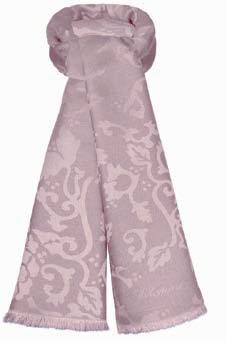






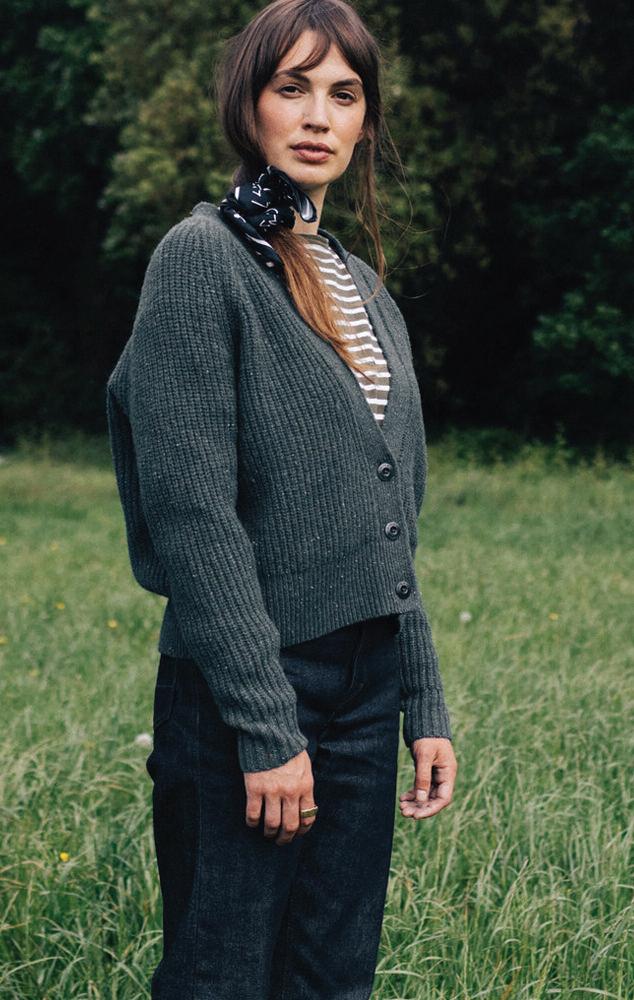

THEBRISTOLMAG.CO.UK | NOVEMBER 2022 | THE BRISTOL MAGAZINE 15 Anya Slipper, £79 • whistles.com GUSHLOW & COLE Full palm shearling mittens, £185 • harveynichols.com Borg Bucket Hat, Neutral £79 • whistles.com Colour Block Wool Cotton Cardigan, £245 • toa.st Mora Knit Cardigan, £115 • finisterre.com Patchwork Shearling Coat, £1,199 • whistles.com Quiet Room Slipper Socks, £25 • seasaltcornwall.com Oakford Knee High Boots in Dark Brown Leather, £275 • DuoBoots.com Chopard Heritage Stole, £398 • mallory-jewellers.com

48 hours in Exeter this winter
Escape to the beautiful and historic city of Exeter this winter for the ultimate Christmas break
Exeter’s neighbourhood feel city centre makes it ideal for a festive Christmas experience. Browse big-name brands on the High Street, discover the West Quarter for the creatives on Fore Street and explore the Castle Quarter including the quaint cobbled Gandy Street.

A visit to Exeter Cathedral is a must, as well as the atmospheric Christmas Market on Cathedral Green, open from 18 November until the 18 December. Browse for unique and artisan gifts and enjoy festive food and mulled wine.

The city’s Christmas lights will be on from 17 November, and new for 2022 is the Exeter Carnival, set to light up Exeter’s streets on the evening of 26 November. Visit Northernhay Gardens for the magical Winter Wonderland with its undercover ice rink, open from 17 November.
Cosy up with a real ale in one of Exeter’s historic pubs, or seek out one of Exeter’s rooftop cocktail bars for a seasonal drink. Exeter has a great range of independent eateries catering for all tastes.
Don’t miss the city’s festive shows available
at Exeter Northcott Theatre, Exeter Corn Exchange and Exeter Phoenix.
Exeter’s historic attractions are open yearround, including the Royal Albert Memorial Museum, Red Coat Guides and the Underground Passages. When you’ve finished exploring, put your feet up and experience the ultimate in relaxation at the St Sidwell’s Point Spa in the heart of the city.


Exeter is just 1 hour by train from Bristol with GWR.

Go to www.visitexeter.com/christmas to find out more about visiting Exeter this Christmas.
Win a festive break in Exeter
Travel by train with GWR to enjoy a short city break for 2 this winter, with a 2-night stay at the historic Turks Head pub in the heart of Exeter, plus some fantastic festive activities and treats! Competition closes on 23rd November.
Enter online at: www.visitexeter.com/wintercompetition
THEBRISTOLMAG.CO.UK | NOVEMBER 2022 | THE BRISTOL MAGAZINE 17
legacyLasting

Opening this year’s Clifton Literary Festival, which runs from 11–13 November, is former BBC broadcast journalist Michael Buerk. Ahead of his appearance, we asked Buerk about his ground-breaking reporting, extraordinary life’s work and his time at BBC Radio Bristol...

Renowned
for his distinguished 52-year career at the BBC, during which he captured some of the most defining moments in Africa’s recent history, Michael Buerk is indelibly linked to his reports that awoke the world to a famine that was ravaging Ethiopia. His powerful words teamed with footage shot by Kenyan cameraman Mohammed Amin, depicting the true horrors of poverty and starvation, were broadcast to an audience of millions on 23 October 1984. Buerk’s report led directly to a large-scale international relief effort, estimated to have saved over a million lives, and became one of the most famous television reports of the late 20th century.
What’s more, Buerk’s dispatches inspired musicians Bob Geldof and Midge Ure to piece together the charity supergroup Band Aid, releasing the song Do They Know It’s Christmas? in 1984 and later launching the 16-hour charity concert Live Aid in July ‘85, which became an iconic moment in history, raising millions for Famine Relief in Africa.
Since then, Michael Buerk’s journalistic and story-telling skills have
been recognised with multiple international awards for television reporting. He was named ‘Television Journalist of the Year’ by the Royal Television Society in 1984 and has won a BAFTA for factual broadcasting, a ‘Golden Nymph’ at the Monte Carlo Film, Television Festival Europe’s premier prize for television journalism and two of the three most important honours for broadcasters – the US ‘National Headliner’ and ‘George Polk’ awards.
After an early career in newspapers, Buerk’s journey as a broadcast journalist began in Bristol, where his voice was the first to be heard on BBC Radio Bristol in 1970. From there he would go on to deliver the first news bulletin of the millennium as a BBC News anchor.
Working alongside Kate Adie at Radio Bristol, Buerk became a familiar figure in the local community. Now, as he prepares to return to the city on 11 November to speak at the Clifton Literary Festival, we sat down with the former newsreader to talk about his time on air and his subsequent career, which made him one of the greatest journalists of our time.
Speaking from a yacht in a small bay in southern Turkey as he
18 THE BRISTOL MAGAZINE | NOVEMBER 2022 | No 216
enjoys an overdue holiday, Buerk spoke affectionately about his early days as a journalist. “BBC Radio Bristol was the first of the main tranche of BBC local radio stations. They advertised a job and I thought all my dreams had come true when I got it.
“The thing about local radio is that you don’t have the resources that you have in television but, on the other hand, you do have total control in what you’re doing. You don’t have to rely on a crew and there was lots of air time to fill. The great thing about local radio was that you were striving desperately to be part of the community, to be the notice board for them. It was glorious, it was one of the most enjoyable times of my life, setting up something new with a load of people in their twenties.
“The SS Great Britain had just arrived and there was something quite totemic about that and the association with Brunel. My wife Christine and I lived in Easton-in-Gordano before the M5 was built. She was working on the Western Daily Press, and I was working with the BBC. I commuted to work across the Suspension Bridge, which was so dramatic.
“One particular highlight was when our education producer –who was an extraordinarily talented guy called Ken Blakeson, an exteacher and would-be chief scriptwriter for Coronation Street and playwright for Radio 4 – put together a marvellous Passion Play. We all had a part – I was a centurion as well as a donkey. Kate Adie was Mary Magdalene. It was just wonderfully homespun but it was a
pretty sophisticated production, particularly for local radio and it ran on Radio 4 as well.”
After a year at BBC Radio Bristol, a move to HTV, based on the Bath Road, gave Buerk a taste of life in front of the camera. He then left Bristol to become a BBC network reporter from 1973-76, Industry correspondent from 1976-77, Energy correspondent from 1977-79, Scotland correspondent from 1979-80, a special correspondent from 1980-82, and, most notably, Southern Africa correspondent from 1983-87.
During his time overseas, Buerk reported from more than 50 countries, including South Africa, where he spent four years before being asked to leave the country by the government for his uncompromising reports on the brutalities of the apartheid regime.
In 1991, Buerk was airlifted out of Addis Ababa, Ethiopia’s sprawling capital in the highlands, after a munitions dump exploded, killing his Kenyan sound recordist, John Mathai, and injuring cameraman Amin.
Looking back on his time in the field with “mixed feelings”, Buerk shared his own thoughts on the reports that were watched by the world. “Certainly, in Africa at the time, I was going from insurrection, to war, to a natural disaster, to a famine, and, of course, to the final meltdown of apartheid. A lot of it was very dangerous, a number of my colleagues were killed. It was depressing in the sense that you were forever dealing with evil and inequity and sadness and deprivation and suffering and you did wonder what you were doing it for, what the relationship was for the viewer, what they were getting out of it. The response to the Ethiopian reports were heartening in a way but I always worried about whether it was dark entertainment, people sitting in the comfort of their living rooms watching people suffer. Could I possibly share the experience of actually being there?
“I was very gloomy about that until those particular reports [in Ethiopia in 1984]. It showed that actually people were capable of the moral imagination of those positions and taking some sort of view that they could play a role in doing something about it, which I don’t think had happened before, and I don’t think really has happened since. I’m not quite sure what made that special, what it was about us or them or that particular time but of course it was heartening.”
On returning to the UK, Buerk became one of the main anchors for the BBC Nine O’clock News, later the BBC Ten O’clock News. He also began presenting non-news programmes, such as BBC1’s 999, as well as the ethical debating programme, The Moral Maze, on BBC Radio 4, which he continues to host with much enthusiasm after 32 years on air.
“In journalism, one’s concern is always to make oneself understandable but the Moral Maze is a programme that doesn’t make concessions, simplify or make superficial just to make it palatable. We also have clever people on the panel and we go to great lengths to find articulate people with points of view to challenge. There must be fairness but it is also about testing arguments to destruction.
“The older I get the more I realise the importance of the moral dimension of the arguments about current events and I get more and more interested not just about arguing about Liz Truss or Jeremy Hunt but what the aims are and should be, what’s the underlying issue that we’re arguing about rather than the mechanics or even the politics of something, what’s the moral issue at stake here? That’s what I enjoy the most.”
Buerk’s powerful reporting and life-long dedication to truthful journalism continues to inspire the next generation of journalists on the home front and further afield. In this city in particular, however, some 52 years after his voice was first transmitted into homes around the county, his enduring legacy is important and influential. n
• Michael Buerk will be in conversation with David Parker at the Clifton Literary Festival on 11 November. For more information about the festival, visit: foccal.com. Image credit: BBC/Abigail Zoe Martin

THEBRISTOLMAG.CO.UK | NOVEMBER 2022 | THE BRISTOL MAGAZINE 19 CLIFTON LITERARY FESTIVAL
Ma San Auction

ORIENTAL WORKS OF









20 THE BRISTOL MAGAZINE | NOVEMBER 2022 | NO 216 www.masanauction.com Free valuations and home visits • Over 30 years experience • Competitive commission rates Direct contacts in Hong Kong and China • Sales every month 2 Princes Buildings, George Street, Bath BA1 2ED Tel: 01225 318587
In Bath SPECIALISTS IN
ART Free valuationsNow accepting consignments for future sales! A CHINESE CARVED ‘CHICKEN BLOOD’ SOAPSTONE SEAL ON STAND. Of rectangular form carved in relief with figures in a boat below mountains and pine trees with clouds. A Ming dynasty poem inscribed down one side dated in the Jiajing period (1522-66) signed 'San Qiao’, commonly known as Wen Peng (1498 to 1573), who was a maker of personal seals in the Ming dynasty. The seal with an intricately carved green lacquered stand depicting crashing waves. 13cm tall including stand. Found in a local Bath home. Sold for £35,100 incl. premium.

Raymonda revisited
English National Ballet returns to the Bristol Hippodrome for the first time in four years with a beautiful new production of the virtuosic classical ballet Raymonda. We take a closer look at why this ballet classic is so magnificent...
England,
1854. Raymonda runs away from her comfortable life to become a nurse in the Crimean War.
There, she becomes engaged to a soldier, John, but soon develops feelings for his friend Abdur, a leader of the Ottoman army. As turmoil grows around and inside her, who will she give her heart to?
The original Raymonda is one of the jewels of classical ballet, with exquisite choreography by Petipa ( Swan Lake , Nutcracker ) and one of the most glorious ballet scores ever written. Over 100 dancers and musicians bring it to life, updated with a dramatic new story that celebrates the courage of nurses and women who fought for emancipation.
Here, we look at some of the reasons why this magnificent production of a ballet classic is not one to miss this month.
Directed by ENB’s Artistic Director and acclaimed ballerina Tamara Rojo, it is bursting with beautiful music, stunning set pieces and superb dancing.
It’s a rare chance to see the full ballet performed, and in a truly grand-scale production
Raymonda is rarely performed in full, largely due to the original ballet’s problematic Crusades-era narrative of a damsel in distress, her knightly lover, and a dastardly ‘Saracen’ kidnapper. Tamara Rojo’s new production reframes the story, drawing inspiration from the legendary Florence Nightingale: Raymonda is a young woman in the time of the Crimean War, who travels to the front to serve as a nurse. She finds herself caught between a hasty betrothal to John, an English soldier; her instant attraction to his friend and ally, the Ottoman commander Abdur; and her own calling as a nurse.
Drama, difficult decisions and wonderful dancing ensue in a lavish production brought to life by hundreds of dancers and musicians.
Meet a ballet heroine in charge of her own destiny

The title character of Tamara Rojo’s Raymonda is no passive princess. Raymonda is driven by a duty to help others and is not satisfied to sit at home whilst war rages. She is further conflicted by her promise to marry her childhood friend John, her growing feelings for Abdur, and her desire for independence.
It is an adaptation of the work of ‘ballet’s Mozart’ Marius Petipa was the creator of more than fifty ballets including Raymonda. TheNutcracker, TheSleepingBeauty and DonQuixote are amongst his most famous creations. In adapting Raymonda, Tamara Rojo preserved as much of Petipa’s original and iconic choreography as possible following meticulous research of original notations taken at the turn of the 20th century.
Get swept away by glorious music, performed by a full orchestra Tamara Rojo described Raymonda’s music, by Alexander Glazunov, as ‘the most extraordinary score ever written for ballet.’ ENB Music Director Gavin Sutherland and Music Librarian Lars Payne have adapted the huge score (more than 4,500 bars long) to ensure that all of its colour and character are kept whilst supporting the reimagined narrative. The influence of Hungarian folk music is further brought to life using unique instruments such as the cimbalom (an instrument with over 100 strings struck by small
BALLET 22 THE BRISTOL MAGAZINE | NOVEMBER 2022 | No 216
handheld hammers) and hurdy gurdy (also a string instrument with a hand-cranked wheel to produce sound).
Enjoy the stunning costumes
Designer Antony McDonald combines the colour and gorgeous movement of ballet costumes with the lush detail of period dress. There is not a tutu in sight in this production: the costumes are inspired by the fashions of the Victorian era in which the new story is set, with gorgeous gowns, dashing military uniforms and richly detailed, hand-dyed and printed fabrics to evoke different cultures and styles. n
• Raymonda will be showing at Bristol Hippodrome from 23 – 26 November. Tickets from £13. Book tickets at: atgtickets.com/bristol. Visit ballet.org.uk/raymonda for videos, interviews and more

 Isaac Hernandez and Shiori Kase in Tamara Rojo's Raymonda by English National Ballet © Johan Persson
Precious Adams as Sister Clemence in Tamara Rojo's Raymonda by English National Ballet © Johan Persson
Isaac Hernandez and Shiori Kase in Tamara Rojo's Raymonda by English National Ballet © Johan Persson
Precious Adams as Sister Clemence in Tamara Rojo's Raymonda by English National Ballet © Johan Persson
Hearvoicestheir

As Lyra Festival announces the inaugural Bristol Young City Poet scheme and begins its search for the city’s first ever appointee, we catch up with former Bristol City Poet Caleb Parkin, who will be delivering workshops to help the young people of Bristol find their voices...
Lyra
Festival has officially launched the inaugural Bristol Young City Poet scheme, thanks to Bristol City Council’s Originators Fund and with support from Bristol Ideas, who manage the existing Bristol City Poet project. The scheme involves workshops available to secondary schools and community groups and organisations based in Bristol, aimed at young people aged 14-17 (school years 10-12).
The workshops will be delivered by professional poets Deanna Rodger and Caleb Parkin (Bristol City Poet 2020-2022), and will culminate in one individual being appointed as Bristol’s first ever Young City Poet. The position will last from April 2023 –April 2024.

The workshops will engage young people with self-expression, public speaking and self-empowerment through the medium of spoken word and poetry, inviting participants to write about what Bristol means to them –its people, its places, its history. The project is also connected to the Bristol 650 celebrations next year marking the 650th anniversary of Bristol becoming an independent county (and city).
The City Poet, as with poet laureates in general, traditionally become the city’s conscience and reflects on relevant issues. Similarly, the Young City Poet will act as a voice for young people across the city, writing poems and performing at public events. As the scheme gets underway, we speak to Caleb Parkin, who was the third Bristol City Poet from 2020 –2022, to find out more...
How does it feel to be a part of the inaugural Bristol Young City Poet scheme, especially as it coincides with the 650th anniversary of Bristol becoming an independent county? It’s a delight to be involved in this project: young people aren’t listened to enough and I think poetry (obviously) is one of the best ways to really hear young people’s voices.
Being City Poet was a real joy for me – even through this difficult (understatement) couple of years, on a local and national level. I love this city, whatever this ‘Bristol is’, which I – like so many – have made home. So writing poems to try and reflect, respond to and document some of what has been going on has been a challenge, but a delicious one.
And I think that there’s a young poet out there who’ll really rise to the challenge of responding to the year they’ll be Young City Poet –coinciding with Kat Lyon’s (the new City Poet) time in post too. It’ll be wonderful to see how they frame the stories of Bristol through poems, the many different refracted possibilities contained in our city’s name.
I’m excited for us to go and work with the schools involved, find that person, but to have a great, nourishing, enjoyable time with everyone in the process.
Why is the scheme so important for Bristol and what do you hope it will do for the city and its young people? I’ve worked with and continue to work with young people regularly, and feel they’re not given sufficient credit as younger adults. Just looking at, say, the Youth Climate Strikes
During the pandemic, young people went through a huge amount –being cut off and having to study on-screen only, stuck at home, at a time when young people often want to be sociable, exploring and discovering who they are. Just from experience with my niblings (gender-neutral niece and nephew term!) who are mostly in their teens, they’ve done amazingly well through these circumstances. But not everyone has been so fortunate. And I don’t think enough resources are being put into supporting young people now, to recover from such a traumatic couple of years. It’s just about continuing the examination machine, that they should simply ‘catch up’ as though nothing has happened.
As such, now is an especially good time to really listen to young people. And I think having a Young City Poet will allow some of this to be articulated, by a young person who takes real creative care over how they approach it. That’ll be what I’m looking for, too: someone who has passion to communicate and a wish to keep learning about the ways poetry can do that. It could be a great opportunity for that young person, but also for them to inspire others to get writing, sharing their worldview and life experiences through poetry, and to be heard that way.
Tell us about the workshops that will be available to secondary
24 THE BRISTOL MAGAZINE | NOVEMBER 2022 | No 216
Deanna Rodger is a former UK Poetry Slam Champion who has recently written and performed commissioned pieces for BBC1’s Sports Personality of the Year, Black History Matters for BBC Sport 2020 and If which was read by Serena Williams for International Women’s Day 2021
schools, community groups and organisations based in Bristol...
While we are looking for one Young City Poet at the end of the process, we really wanted the whole process to feel enjoyable, sociable and collaborative.
Deanna is a great workshop leader, so we had fun bringing together our ideas for the session. How could we get each group excited by the potential of writing poems for and about their Bristol? How can we make sure everyone gets a moment to shine, but also work together?
They’ll be really playful sessions, where young people can explore the texture of their area of the city, their unique experiences of living in Bristol more widely, and then bring them together into something to share. I guess I’m especially looking forward to hearing when young people feel really confident speaking in their own voices – with all their quirks, questions and quibbles – rather than any idea of what a ‘poem’ voice should be like. It’s always such a joy when you hear a young writer trust that what they have to say, in the way they want to say it, matters. I’m looking foward to those moments.
Tell us about how the first ever Young City Poet will be chosen and what qualities/skills you will be looking for...
We want this to be an enjoyable process for everyone, throughout, before we then decide on one Young City Poet. After the initial workshops in various settings, we’ll see who were stand outs in terms of their writing, performance, and approach. We will have follow-up session with all these young poets, which will also be fun and collaborative too.
After which, we’ll select a Young City Poet based on: the quality of their writing; the standard of their performance or presentation (being Young City Poet will mean speaking in front of audiences!); their awareness and engagement, as demonstrated through the themes and language in their poems; their collaboration and interaction with others in the group.
As I mentioned earlier, sometimes a young person has a real gift for speaking just as they are, but elevating it into poetry. It’s something I’ve witnessed a lot through schools residency and something I’ll certainly look out for too, that genuine confidence and sparkle.
What did you enjoy the most about being the third Bristol City Poet and what do you hope the first ever Young City Poet will take away
from the experience?
During my time as City Poet, I really wanted to show ways that poetry can be collaborative and collective. A number of my commissions were written in collaboration: with another poet (Tom Sastry and Miranda Lynn Barnes) when I knew they’d bring something brilliant to the commission; with community groups (Christ the King Primary School, Bristol Refugee Rights, my neighbours during a street party!). I also wrote a few poems which invited contributions on a theme (such as ‘Bristol Queen’ or ‘The Things They Get Away With in Public’) by talking to people or asking them to send me responses, and then wove these through a poem, largely comprised of those responses, with ‘me’ weaving them together.
I hope that a Young City Poet can start to experiment with some of this, with what a ‘public poem’ – written with the city, or part of it, or a particular community, in mind – might be able to do. It’ll need to be someone who’s genuinely curious about poetry, language (perhaps with an emerging obsession!) and their potential, about people, and about our connections to one another. These, I think, are such vital qualities in being a ‘public writer’ such as Young City Poet.
In your opinion, how does poetry have a power to inspire change and reflect the city’s conscience like no other artform?
The short answer is that I think of poetry as one of many artforms and that I’m really interested in the ways it intersects with visual art, music, sculpture, but also with the sciences and other disciplines too.
Interdisciplinary work is where it’s at for me and poetry can ‘plug into’ so many other fields in the world – and the world is endlessly fascinating to me. Us poets are, I think, insatiably nosy (OK, curious).
While I think poetry has its own special tools and devices – the way it can shortcut directly into human experience, the spooky word-magic of metaphor, the uniqueness of language as a medium – I don’t think it’s better or worse than other artforms. I would be lost without music, art, film, TV, dance and dancing. I love them all. It’s just that I’m a poet – I can’t help it! I’ve tried not being a poet! – and poetry is the way I think about the world and the way I find a route through life in all its turbulence and trials. n
 • For more information about the Bristol Young City Poet scheme, visit: lyrafest.com/about/young-city-poet
Caleb Parkin is the third Bristol City Poet (2020-2022). He won second prize in the National Poetry Competition 2016, the Winchester Poetry Prize 2017 and various other shortlists. His educational work is extensive, tutoring for Poetry Society, Poetry School, Cheltenham Festivals, Arvon and First Story
Credit: Sam Cavender
• For more information about the Bristol Young City Poet scheme, visit: lyrafest.com/about/young-city-poet
Caleb Parkin is the third Bristol City Poet (2020-2022). He won second prize in the National Poetry Competition 2016, the Winchester Poetry Prize 2017 and various other shortlists. His educational work is extensive, tutoring for Poetry Society, Poetry School, Cheltenham Festivals, Arvon and First Story
Credit: Sam Cavender
Feast your eyes
This winter, Pink Lady® Food Photographer of the Year, the world’s leading awards for food photography and film, is premiering its eleventh exhibition at The Royal Photographic Society, one of the oldest photographic societies in the world.
With over 170 images from more than 25 categories, ranging from the Politics of Food to Marks & Spencer Food Portraiture, the exhibition captures the great sweep of stories and cultures in the world of food.

Speaking about this year’s exhibiton, Caroline Kenyon, Founder/Director of the Awards said: “We are hugely looking forward to returning to The Royal Photographic Society with our latest exhibition. We had such a warm welcome last year, our first there, in a city which celebrates artistic creativity and food in equal measure.
“It’s a joy to see all the Finalist images and films together in one place, they give off such an exciting energy –do come and enjoy
them with us.”
Dr Michael Pritchard FRPS, Director of Education and Public Affairs of The Royal Photographic Society added: “Food is something that we all have an interest in. This exhibition reminds us of the politics of food production, how food is prepared and consumed, and how it is marketed – all of which have photography at their core.
“The 2022 exhibition is a visual feast as well as providing plenty of food for thought about the importance of food. The RPS is delighted to once again show this popular exhibition.” n
• The exhibition at The RPS, Bristol will run from 19 November to 11 December 2022. Entry is free. No booking required. The 2023 edition of Pink Lady® Food Photographer of the Year is now open. Submissions close on Sunday 5 February 2023. To find out more visit: pinkladyfoodphotographyoftheyear.com
As the Pink Lady® Food Photographer of the Year exhibition returns to The Royal Photographic Society this month, we feast our eyes on some of the winning shots...
26 THE BRISTOL MAGAZINE | NOVEMBER 2022 | No 216
Overall winner (and winner of the Street Food category) Kebabiyana by Debdatta Chakraborty, India
Clockwise from top right: Traditional Food by Weining Lin, China; Winner of ‘Food for the Family’ category Putting On The Ritz by John Carey, United Kingdom; Winner of ‘Food at the Table’ category Food-processing by Joyjit Das, Bangladesh; Winner of the ‘Young (15 - 17)’ category Ponyoandkiev by Casey Lazonick; commended place in the Claire Aho Award for Women
Photographers
Lemon Cake by Isabelle Hattink, Netherlands; Winner of the ‘Champagne Taittinger Wedding Food Photographer’ category



Where Dreams Fly Away by K M Asad, Bangladesh; Winner of the ‘Politics of Food’ category



THEBRISTOLMAG.CO.UK | NOVEMBER 2022 | THE BRISTOL MAGAZINE 27
WHAT’S ON
Arnolfini, UWE Bristol & Juneau Projects: Community Art Workshops
n Taking place over the next 12 months
A series of community art workshops and events will begin this month to give local people the opportunity to have a hand in creating a new public art and nature project at UWE Bristol’s Frenchay Campus. Find out more at: arnolfini.org.uk
Luxmuralis Space Voyager Light Show
n 1 –5 November, Bristol Cathedral
Take a journey to the edge of the galaxy and back inside Bristol Cathedral this November. Immerse yourself in mesmerising light and sound throughout the medieval architecture of the Cathedral. Enjoy the building’s beauty while contemplating the wonders of the universe. Tickets £6-£9.50 per person. bristol-cathedral.co.uk/whats-on/luxmuralis
Bristol Choral Society & Bristol
Ensemble: Stravinsky Symphony of Psalms & Faure Requiem
n 5 November, Clifton Cathedral
Bristol Choral Society is very pleased to bring you this programme which was due to be performed March 2020. Not for Fauré the Requiem ‘shock and awe’ of a Mozart, Berlioz or Verdi. Refined over a decade, his Mass for the Dead sustains an abiding solace discharged in the luminescent hope and reassurance of the concluding In Paradisium. First though there’s profound spirituality of a different order as glittering
EDITOR’S PICK...
An artistic soirée
n 23 November, Second Floor Restaurant, Harvey Nichols Bristol
Dutty Moonshine Big Band

On 23 November, Fluorescent Smogg will unveil the latest collection by respected artist Xenz at the Second Floor Restaurant, Harvey Nichols Bristol. Following a welcome cocktail paired with a canapé, customers can enjoy a three-course meal while discovering new pieces by Xenz, with the chance to shop exclusive designs at the event.
Xenz will introduce the collection, which will be on display at The Second Floor Restaurant until March, and talk through the unique pieces.
Following the launch event, the collection will be available to view at The Second Floor Restaurant on Sundays: 12pm – 5pm and Wednesday to Saturday: 12pm – 10pm.
• Tickets cost £40 per person, and include a three-course meal, plus a cocktail with a pairing canapé from a menu inspired by the artwork. For further information, or to book please contact the Second Floor reception on reception.bristol@harveynichols.com or +44 (0) 11 7916 8898
woodwind, brass, two pianos and harp queue up to reflect the laser-sharp light of Stravinsky’s triptych ‘symphonising the singing of Psalms’. It’s prefaced by more Stravinsky, his time in black and white: his wartime Sonata For Two Pianos, a work shot through with crystalline neoclassicism. bristolchoral.co.uk
Hamlet
n Until 11 November, Bristol Old Vic
Experience the star-studded premiere of Hamlet from wherever you are in the world, broadcast live from our stage to your screen. Bristol Old Vic On Screen has announced two live broadcast dates for the
theatre’s production of Hamlet, coming to you wherever you are, on 10 and 11 November. Captured by state-of-the-art cinematic technology, the theatre will broadcast the live production directly from the beautiful 255-year-old theatre so you get the full live experience from the best seat in the house. bristololdvic.org.uk
The Slapstick Festival Presents: Stranger Films with Alasdair Beckett-King n 12 November, The White Bear
Discover the crazy world of early cinema with stand-up comedian, animator and video games writer Alasdair Beckett-King –named by Rolling Stone magazine as an
ÚContinued page 30 28 THE BRISTOL MAGAZINE | NOVEMBER 2022 | No 216




THEBRISTOLMAG.CO.UK | NOVEMBER 2022 | THE BRISTOL MAGAZINE 29
unmissable act at the 2022 Edinburgh Fringe, a favourite on Mock the Week and a YouTuber with more than 250K followers. This night aims to showcase the absurdly alternative comedy that paved the way for your favourite slapstick movies and physical comedians today. Go early or stay on to enjoy some further strangeness downstairs in the White Bear Pub. slapstick.org.uk
City of Bristol Choir: Music of Remembrance n 13 November, St George’s Bristol City of Bristol Choir, Bristol Youth Choir and Bristol Ensemble join forces to perform dramatic, poignant and intensely moving music of remembrance for choir and orchestra, including Ralph Vaughan Williams’ Dona Nobis Pacem . They are joined by the internationally renowned saxophonist Amy Dickson to perform Richard Blackford’s Pietà, a beautiful setting of the Stabat Mater text interspersed with poems from the Ukrainian born poet Anna Akhmatov. stgeorgesbristol.co.uk
Bristol Ensemble and Fitzhardinge Consort: Viva Vivaldi by Candlelight n 16 November, St George’s Bristol St George’s Bristol is transformed into a candlelit auditorium, transporting us to the Chiesa di Santa Maria Della Pietà in Venice where Antonio Vivaldi worked and performed many of his compositions. The programme includes Vivaldi’s lively Gloria as well as the ever-popular Winter from The Four Seasons . Tickets £15 to £30; stgeorgesbristol.co.uk
Bristol Film Festival: Chicago n 17 November, Bristol Improv Theatre Celebrate the 20th anniversary of one of the great stage-to-screen musical adaptations this November. TSlick your hair and wear your buckle shoes (and all that jazz), and step into the Improv Theatre’s subterranean
speakeasy for a night to remember. bristolfilmfestival.com
Dutty Moonshine Big Band n 19 November, SWX
Electronic prowess from DJ Binge and Howla, stadium-worthy drumming from Chris Hutchinson, seven piece fatter than fat brass from Temple Funk Collective all fronted by Dutty Moonshine, Maria Laveau and Hypeman Sage. There’s not a band on the planet that sounds like Dutty
Moonshine Big Band. They fuse band Jazz, Swing and Blues with enormous basslines and even bigger beats. The live show is a high octane energy that will leave you sweating and screaming for more and is not one to miss. duttymoonshine.com
Homebuilding and Renovating Show n 19–20 November, The Bath & West Showground
Building a house, or renovating your home is both exciting and rewarding, yet it’s not without its challenges. At the Homebuilding & Renovating Show, the team will give you the confidence that you’re doing things in the best way, with the best tools for the job. Hear their inspiring speakers live on stage, get tips and tricks in tailored seminars, take advantage of one-on-one consultations with experts and see, touch and compare the latest products, all under one roof at the The Bath & West Showground, from the 19-20 November. Get your two free tickets, worth £36. Offer expires at 3pm on 3 November 2022; somerset.homebuildingshow.co.uk
The Spiegeltent Drag Ball
n 24 November, Waterfront Square Channel that sass, tuck firmly and get your strut on as the Drag Ball returns to Bristol with a mixture of Drag Race stars and support from the local drag scene. christmasspiegeltent.co.uk


30 THE BRISTOL MAGAZINE | NOVEMBER 2022 | No 216
Alasdair Beckett-King
The Spiegeltent Drag Ball is taking place on 24 November



THEBRISTOLMAG.CO.UK | NOVEMBER 2022 | THE BRISTOL MAGAZINE 31
FAMILY DIARY
DISCOVER THE BEST THINGS TO SEE & DO WITH THE FAMILY THIS MONTH

Wake The Tiger Amazement Park
n Open now, Albert Road BS2 0YA
From the artistic team behind the groundbreaking festival, Boomtown Fair, journey to the world of Meridia. Having spent over a decade creating one of the most large scale immersive festival experiences in the world, the team wanted to expand and diversify their creative potential by establishing a year round arts and events venue where audiences can experience the work in a non-festival environment. wakethetiger.com
See Monster

n Until 5 November, Weston-super-Mare
The transformation of a decommissioned North Sea offshore platform is a world-first that is set to become one of the UK’s largest public art installations, aiming to inspire global conversations about the repurposing of large industrial structures and design-led solutions to sustainable futures. See Monster can be experienced from the seafront, beach and on board and will feature four publicly accessible levels animated by a 10-metre-high waterfall; a 6,000-piece kinetic installation forming the monster’s shimmering scales; an onboard oasis of grasses, plants and trees selected to thrive in a seaside micro-climate, and so much more. seemonster.co.uk
Terrifying Turnip Trail
n Until 6 November, SS Great Britain
Follow SS Great Britain’s Terrifying Turnip Trail to experience frolic and fright the Victorian way. Back in the 19th century, turnips were traditionally used as jack o’
Wake the Tiger
lanterns – ghoulish faces were carved into them to ward off ghostly spectres from the family home. Each turnip along the trail will reveal truths about ‘All hallows eve’ customs. ssgreatbritain.org
Bristol Film Festival: The Greatest Showman (PG) n 6 November, Loco Klub

Roll up, roll up for the Bristol Film Festival’s first screening at the Loco Klub with the contemporary classic The Greatest Showman. With prefilm entertainment and onscreen lyrics to help you join in with the hits from the award-winning soundtrack, it’s an opportunity to relive the magic of this star-studded sensation in style. bristolfilmfestival.com
Scribble and Sketch n 12 November, Easton Community Centre
Join RWA’s Scribble and Sketch artists at locations across the city on Saturdays once a month for FREE family workshops. These sessions are designed for children and grown-ups to take part in together –everyone is welcome. Admission is free. No prebooking required. Suitable
for all ages, children must be supervised. rwa.org.uk
Bristol Old Vic Theatre School: Robin Hood and Marian n 25 November –2 December, Redgrave Theatre Deep in Sherwood Forest, swashbuckling power couple Robin Hood and Marian are taking from the rich to give to the poor. Along with their band of outlaws, they have one goal: to outsmart the fearsome Sheriff of Nottingham and greedy Prince John. An explosive musical adventure for the whole family; sword-wielding, dragons, venison pasties and more archery than you can aim your arrow at. oldvic.ac.uk
The Children’s Bookshow: Kwame Alexander n 11 November, Bristol Old Vic New York Times bestselling author and poet, Kwame Alexander will be performing his poetry at the Bristol Old Vic on 11 November as part of the Children’s Bookshow 20th Anniversary tour. The American poet and writer inspires children through his verse to transform their lives and say “YES” to themselves. In this energetic, inspirational, and fun-filled performance, children will be transfixed by Kwame's poems and vibrant storytelling. There will be plenty of opportunity for the audience to ask questions too. Every child attending this performance will receive a free copy of The Crossover bristololdvic.org.uk

BOOK YOUR TICKETS
THE BRISTOL MAGAZINE | NOVEMBER 2022 | No 216
Kwame Alexander



THEBRISTOLMAG.CO.UK | NOVEMBER 2022 | THE BRISTOL MAGAZINE 33
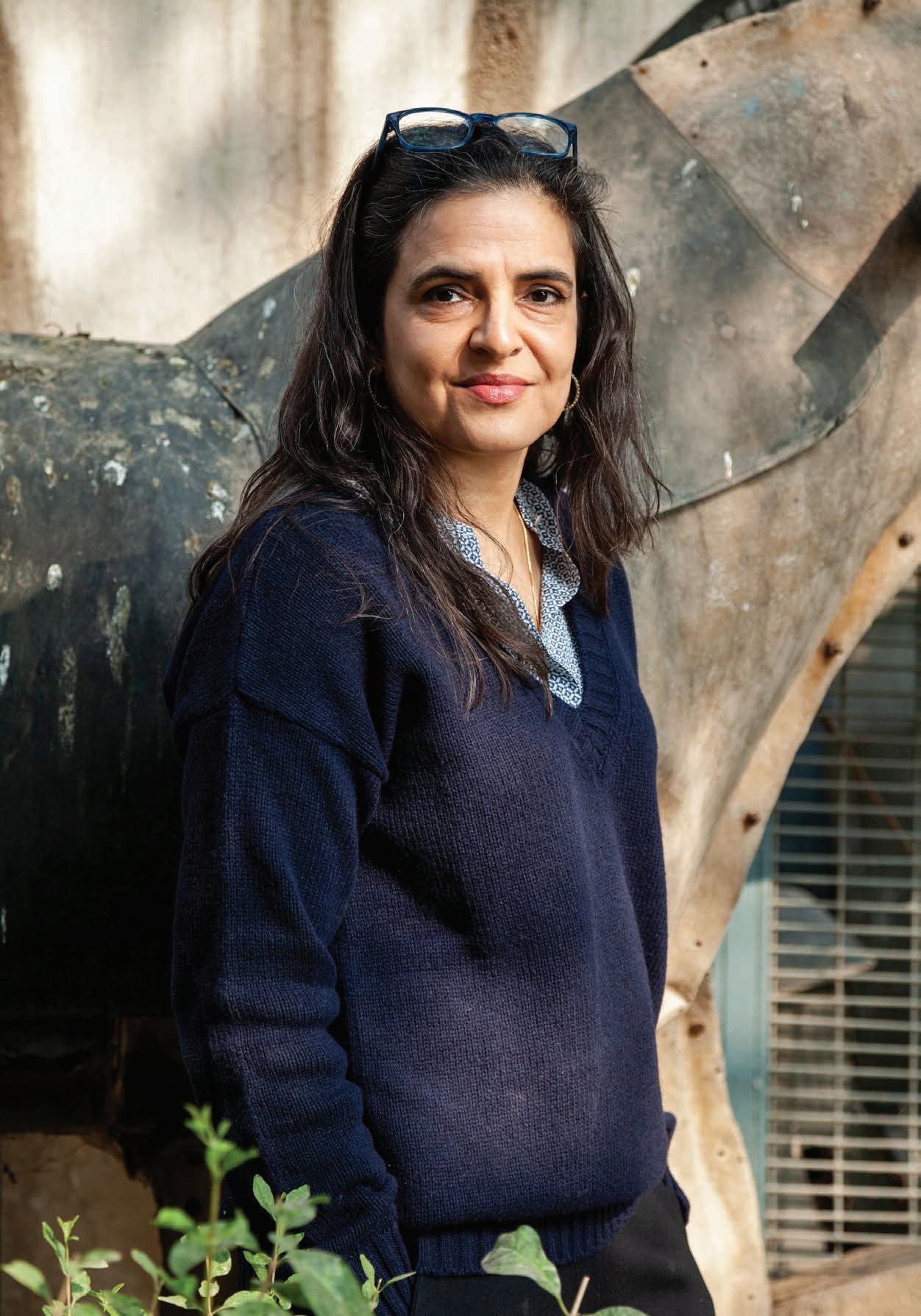 Bharti Kher. Photo Jeetin Sharma. © Hauser & Wirth
Bharti Kher. Photo Jeetin Sharma. © Hauser & Wirth
The Body is a Place
Delve into the work of renowned artist Bharti Kher as she brings her latest exhibition to the Arnolfini...

This autumn, Arnolfini sees internationally renowned artist Bharti Kher return to the southwest, with a major solo exhibition exploring her alchemical practice through drawing, sculpture and the spaces that lie between. Including new and previously unseen works created during residencies in Somerset in 2017 and 2019, The Body is a Place also features Kher’s monumental bindi drawings, the playful and political drawing-based installation Links in a Chain, sculptures made from found objects and plaster casts, and a new encounter with her site-specific bindi work Virus; part of a 30-year project began by the artist in 2010.
The Body is a Place follows the unveiling of Kher’s 18-foot-tall painted bronze sculpture Ancestor in New York in September 2022, and her celebrated installation at this year’s Venice Biennale in the lyrical setting of The Conservatorio di Musica Benedetto Marcello.
The exhibition is also accompanied by a programme of film, music, talks and workshops for all ages, as well as a new publication of the same name available through Arnolfini Bookshop, which covers Bharti’s residency in Somerset. In the book, Gemma Brace, curator at Arnolfini, looks closer at Bharti’s new work. Here, we take an excerpt from the book, written by Gemma, which precedes their Q&A together...
Approaching Arnolfini’s walls like ‘a clean white page waiting to be marked’, Bharti Kher’s work makes marks and gestures, leading us through an exploration of drawing, sculpture, and the fertile spaces that lie between...
From The Body is a Place:
“Approaching Arnolfini’s walls like ‘a clean white page waiting to be marked’, Bharti Kher’s work makes marks and gestures, leading us through an exploration of drawing, sculpture, and the fertile spaces that lie between. Focusing on the quieter corners of her alchemical art, The Body is a Place reveals the importance of drawing to Kher’s wider practice, exploring the complex visual language within which the plurality of her work –the monumental bindi paintings, Links in a Chain’s layers of word and image, the quiet solitude of the Chimeras, and the impossible equilibrium of her ‘balance’ sculptures –is drawn together, and through which she conveys her understanding of the world.
Integral to Kher’s visual language are elements that weave in and out of both her two- and three-dimensional forms, from temporal, locational, and geometrical components such as time, place, space,
and shape, to visual concepts rich in metaphorical meaning such as balance, substance, surface, and layers, each translated through multiple mediums. Encountering these varied forms can at first feel akin to ‘speaking a language that is not our own’ (to paraphrase the title of an iconic earlier work). Yet, it is this language which draws upon a ‘world of objects and a world of words’, that holds the key to deepening our understanding of an artist who simultaneously investigates magical, mythological and scientific realms across time and space, spanning two continents and speaking many tongues.
Kher’s intuitive practice is one that draws upon the senses, in both the artist’s process of making –‘I hear it, taste it, eat it, write it, draw it’ –and our own consumption. To simply look at Kher’s work feels insufficient. It also asks to be read, to be spoken, and listened to with care, pulling us towards an experience in which her work is felt afresh with each new time and place. It is this bodily presence and sensorial pull which begin to discern what Kher refers to as her ‘hand-brainbody-art language’, offering a way in which to navigate her work. In a conversation with artists Susan Silas and Chrysanne Stathacos, Kher talks about first arriving in India (where she moved at the age of 22) and struggling to ‘find a place’. This led to rethinking her approach to language, choosing instead to prioritise a sensory response, encompassing multiple forms of communication.
In the years that have followed, Kher’s practice has incorporated
ART
THEBRISTOLMAG.CO.UK | NOVEMBER 2022 | THE BRISTOL MAGAZINE 35
Body Incantatory 22, 2019.
© Bharti Kher. Courtesy the artist and Hauser & Wirth. Photo Dominic Brown Photography
To simply look at Kher’s work feels insufficient. It also asks to be read, to be spoken, and listened to with care, pulling us towards an experience in which her work is felt afresh with each new time and place...
many different mediums and materials, searching for a way to connect ‘hand-brain-body’ and ‘art’. This search is one that implicates both artist and audience –how Kher presents her work in the world and how we in turn receive it. It draws upon the subtleties of her native English tongue, in which looking, seeing, writing, reading, speaking, and listening have become jumbled terms. In untangling these actions, we are reminded that to look, read or listen is to consume a language (to ‘hear it, taste it, eat it’), but to write, draw, or speak, is to produce it. And Kher is very much a producer.” n
• Bharti Kher: The Body is a Place is on at Arnolfini until 29 January 2023. The Body is a Place is available to buy at Arnolfini Bookshop. Bharti Kher The Body is a Place. Copyright of the Artist, Arnolfini and Hauser & Wirth. Edited by Gemma Brace


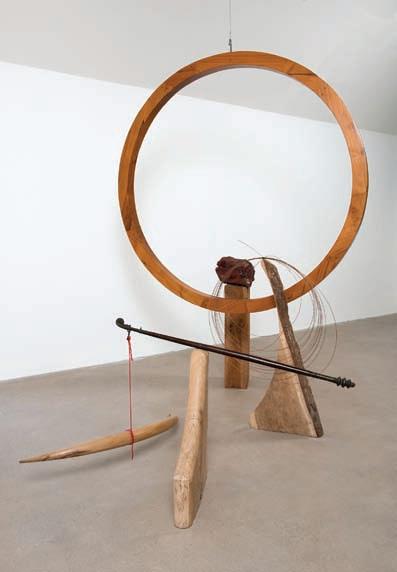
 Consummate joy and a Sisyphean task, 2019. Wood, copper, steel, red jasper stone, 247×66.9×200 cm © Bharti Kher
The Chimera 4 Bharti Kher 2016. Wax, concrete, plaster, hessian fibre, brass. © Bharti Kher
Consummate joy and a Sisyphean task, 2019. Wood, copper, steel, red jasper stone, 247×66.9×200 cm © Bharti Kher
The Chimera 4 Bharti Kher 2016. Wax, concrete, plaster, hessian fibre, brass. © Bharti Kher
36 THE BRISTOL MAGAZINE | NOVEMBER 2022 | No 216
Bharti Kher — Body Incantatory 2, 2019. © Bharti Kher. Courtesy the artist and Hauser & Wirth. Photo Dominic Brown Photography
Body Incantatory 21, 2019. © Bharti Kher. Courtesy the artist and Hauser & Wirth. Photo Dominic Brown Photography


THEBRISTOLMAG.CO.UK | NOVEMBER 2022 | THE BRISTOL MAGAZINE 37 RECEIVE THE BRISTOL MAGAZINE BY POST AND NEVER MISS OUT We deliver to over 15,000 addresses every month, and there’s plenty of pick up points around town. But if you live outside our distribution area or would like us to send a copy to friends or family, we offer a magazine mailing service. Make sure you never miss an issue... all 12 issues from just £33* ANNUAL SUBSCRIPTIONS FROM JUST £33* SUBSCRIBE ONLINE AT www.thebristolmag.co.uk/subscribe or call: 0117 974 2800 THE BRISTOL MAGAZINE
STATE OF THE ART
Art from the Heart, North Bristol Art Trail, 25 –27 November

The annual North Bristol Art Trail will be taking place on the weekend of the 25–27 November in venues around Bishopston, Redland, Horfield, St Andrew’s, Ashley, and Henleaze. Some 110 artists will be showing their work in homes and community venues and everyone is warmly invited to go along to see what they have been creating.
Now in its 21st year, the North Bristol Arts Trail is one of the most important events in the Bristol art calendar. The artists taking part are a mixture of professionals and amateurs. Taking a walk around the trail you will find paintings, prints, ceramics, jewellery, sculpture, photography, textiles and much more.
• Find out more about the artists and venues at: northbristolartists.org.uk. Art trail maps will be available to pick up from shops and cafes around the trail area from the beginning of November
A magnificent two-person exhibition with incredible new paintings by Peter Wileman and Lucy McKie is arriving at Lime Tree Gallery this month. A complete contrast in styles by two members of the Royal Institute of Oil Painters.

• limetreegallery.com; 84 Hotwell Road, Hotwells, BS8 4UB
Image: Clifton Suspension Bridge by Peter Wileman FROI RSMA FRSA
This exhibition brings together the work of Jason Wesaw and Douglas Klemm. Both artists are citizens of Pokégnek Bodéwadmik (Pokagon Band of Potawatomi Indians).The Potawatomi Nation is known as the ‘Keepers of The Fire’ amongst the tribes of the Three Fires Confederacy. Both artists express a profound respect for the land. The minimalist drawings of Wesaw are juxtaposed with richly textured landscape paintings by Klemm. Through expanses of carefully chosen colour drawn with oil pastel on incised archival paper, Wesaw describes a deep connection to nature and his ancestral homelands: “My work focuses on observing how nature organises and influences us. The bold colours and simple patterning lend itself to a visual language that comes across more meditative and reflective in the way we feel when seeing a beautiful sunrise or looking out across a vast expanse of mountains. Spirit manifests itself in these sacred places. It is this amazement, this wonder, that is at the heart of our relationship with the natural world and forms the core of our identity as ‘Keepers of the Fire’.”

As a landscape artist Klemm is directly inspired by the natural world. He said: “Composition is very important as are the design elements of form, line, color, texture, rhythm, repetition and balance. If I use a photo reference, it must be one I have taken myself. I need to be on-site to experience the energy, details and spirit of the land.” This exhibition calls on us all to be more respectful of the lands that we inhabit.
• rainmakerart.co.uk; 140 Whiteladies Road, BS8 2RS
EXHIBITIONS
Keepers of the Fire, Rainmaker Gallery, until 19 November
Image: Mskwanegek (Sassafrass) 2022, oil pastel and copper leaf on incised paper by Jason Wesaw
Image: Threatening Sky by Jane Boot
38 THE BRISTOL MAGAZINE | NOVEMBER 2022 | No 216
Wileman and McKie, Lime Tree Gallery, 10 –30 November



THEBRISTOLMAG.CO.UK | NOVEMBER 2022 | THE BRISTOL MAGAZINE 39
Expert opinion
From Chris Yeo, Valuer at Clevedon Salerooms and regular expert on BBC’s Antiques Roadshow

Sitting Pretty
Chairs are works of art. Well, not all chairs but some chairs –particularly Danish ones. Go to Denmark and you’ll soon discover that the Danes take design very seriously. That this should be the case really isn’t all that surprising. In the harsh climate of the North, the home becomes more than purely where you eat and sleep, it’s the centre of family life and the place where you socialise with friends. For the Danes, the home and its furnishings are of special interest to everyone.
So how did this small country of modest people get to such a position of pre-eminence in the design world? The roots of Danish design are far longer than you might think. It was among Denmark’s fishermen and farmers, building boats, houses, and furniture for their own use that a strong crafts tradition developed. Crucially, Danish craftsmen and designers stayed loyal to these traditions long after other countries had moved on to more modern materials and manufacturing. In doing so the Danes developed an expertise working with wood that
other countries simply couldn’t match. It was this level of expertise, coupled with a flair for design that became the major hallmarks of Danish design in general and chair making in particular.

One of the most iconic chairs ever made was designed in 1955 by designer Arne Jacobsen. With a curved plywood seat and back and on spindly metal legs, design aficionados know it as the 3107 but you probably recognise it from its scandalous 1960s associations: it’s that chair from that photograph of Christine Keeler, fresh from the Profumo scandal, provocatively straddling the chair wearing a coy expression and very little else. Except, it isn’t. If you take a closer look, you’ll see that, unlike the genuine article, hers has a handle cut into the back. Reader, they gave her a cheap copy!

“Sitting Pretty” an exhibition of chairs is currently showing at the Stradling Gallery, 48 Park Row, Bristol www.stradlingcollection.org. ■
• clevedonsalerooms.com; @chrisyeo_antiques (Instagram)
40 THE BRISTOL MAGAZINE | NOVEMBER 2022 | NO 216
COLUMN | CHRIS YEO ON ANTIQUES
Form & Freedom, Andrew Bird and Chris Buck, Clifton Contemporary Art, until 5 November
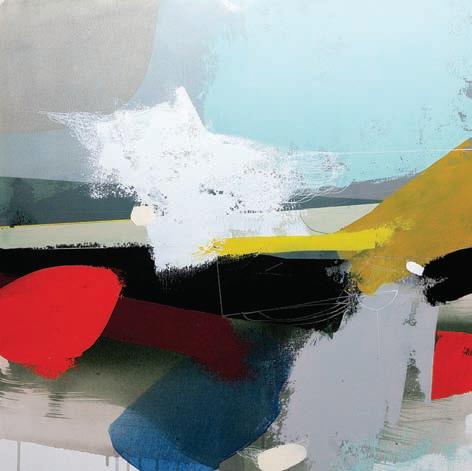
In the paintings of Andrew Bird and the cast bronze sculptures of Chris Buck, there is an exciting juxtaposition between the spontaneous and structural form.
The balance between these forces gives their work impact and presence – revealing more the closer you look. Through Andrew’s layered, potent canvases, you can see the interplay between form and freedom, as he conjures fleeting images or what he calls ‘slices of time’ with immediate, gestural marks and rich, sometimes unexpected colours. Yet always there is a sense of solidity and permanence underneath – like the relationship between ancient rock and fleeting clouds.
For Chris, creative freedom and spontaneity are his points of departure. His sculptures are essentially abstract, sometimes inspired by found objects and developed without planning or drawing. Yet beyond the enigmatic titles, patinated textures and polish surfaces, there is always a timeless form, like something shaped by the elements or made in the distant past. You can explore the interplay between form and freedom in these powerful, charismatic works at Clifton Contemporary Art this autumn.
• cliftoncontemporaryart.co.uk; 25 Portland Street, Clifton, BS8 4JB
RWA’s 169th Annual Open Exhibition, until 8 January 2023

The RWA’s renowned Annual Open Exhibition is back for its 169th year with a stunning variety of work from emerging and established artists. Most notably, two water colours painted by His Majesty The King (when he was The Prince of Wales) have been installed in the main gallery at the RWA, and included as part of its Open Exhibition. The RWA is now the first art gallery in the UK ever to exhibit the art of a reigning British monarch as part of an Open Exhibition.
Wildlife Photographer of the Year, M Shed, 19 November –29 May
Wildlife Photographer of the Year is back at M Shed with a brand new set of images capturing the breathtaking diversity of the natural world.
From fascinating animal behaviour to remarkable species, 100 powerful photographs illustrate the precious beauty of our planet.
The images shine a light on stories from all over the world and convey the impact of human activity in ways that words cannot. Now in its 58th year, Wildlife Photographer of the Year is the most prestigious photography event of its kind, providing a global platform that showcases some of the best photography talent from around the world. Launching in 1965, today the competition receives entries from over 90 countries all over the world.
Winning images are selected for their creativity, originality and technical excellence by a panel of international experts.
• bristolmuseums.org.uk; Princes Wharf, Wapping Road, BS1 4RN
Image: Heavenly flamingos by Junji Takasago, Japan | Winner, natural artistry Junji Takasago/Wildlife Photographer of the Year

The dynamic and varied exhibition includes painting, drawing, printmaking, photography, sculpture, installation and mixed media and is a showcase of some of the most exciting artists from across the country. All work will be for sale making the Annual Open a perfect opportunity to discover new artists or invest in well-known names.
Located in a spectacular Grade II* listed building in the heart of the city, the RWA is the UK’s only Royal Academy of Art housed in its own, original, purpose-built gallery. The building has recently completed a £4.5m transformation –opening up access for all. It provides opportunities for everybody to get creative and feel inspired.
Through its extensive programme of exhibitions, events, workshops, talks and lectures, the RWA is committed to providing great art for everybody, and to promoting the understanding and enjoyment of art for the widest possible audience.
• rwa.org.uk; Queens Road, Clifton, BS8 1PX
Pictured: Kilphedir Pool on The River Helmsdale, Sutherland (HRH 2015.06) and Brecon Beacons from Llwynywermod (HRH 2016.05)
EXHIBITIONS
Image: Elements by Andrew Bird – acrylic on canvas
THEBRISTOLMAG.CO.UK | NOVEMBER 2022 | THE BRISTOL MAGAZINE 41
Winterwonders
As starlings once again begin to swoop and swirl in mesmerising shape-shifting clouds, Andrew Swift takes a closer look at one of the most celebrated natural phenomena...
Waiting on the platform at Temple Meads as the light fails on a winter’s afternoon isn’t as diverting as it was in the 1980s. Back then, as dusk fell, tens of thousands of starlings would spiral overhead, tracing swirling patterns in the darkening sky before settling to roost under the high arch of the roof. These spectacular displays had their downside, however, as droppings fell copiously on stonework and passengers alike, but attempts to put an end to them by draping nets across the open spaces at either end of the roof were only partially successful.
The railway authorities needn’t have worried, though. Forty years ago, there were around 70 urban starling roosts like that at Temple Meads across the country. Today, they are but a distant memory, for between 1967 and 2015 the number of starlings in England fell by a staggering 87%.
Starlings aren’t the only species to have experienced such a precipitous decline. House sparrows and skylarks have also suffered catastrophic drops in population, and, while there is no consensus as to the cause, many people are convinced that changing farming practices are largely to blame. Starlings feed on insects, earthworms, spiders, centipedes, woodlice, snails, slugs and leatherjackets, many of whose numbers have plummeted due to the use of pesticides and the loss of flower-rich hay meadows.
Farmers can’t shoulder all of the blame, however. As their partiality for urban roosts once demonstrated, starlings aren’t averse to city life and can still sometimes be seen foraging on suburban lawns. Such scenes were once far more common, however, and, according to the garden writer and broadcaster Kate Bradbury, this is down not only to ‘the loss of green space, the paving and faketurfing of gardens’, but also to the quest for perfect lawns, which entails dousing them with chemicals and eradicating the critters which starlings and other birds depend on.
It isn’t only in Britain that starling numbers have fallen; it’s a similar story across much of Europe. In North America, however, although their numbers have declined, they are still plentiful enough to be regarded as a pest. The curious thing is that, until 1890, they
were unknown in North America. The reason they turned up then is thanks to a businessman from the Bronx called Eugene Schieffelin, who, as part of an attempt to introduce all the birds mentioned in Shakespeare’s plays into the United States, released a hundred or so starlings in Central Park. Most of the species he introduced failed to become established, but within less than a century starlings had become one of the most abundant birds across the entire continent, ousting native species, disrupting local ecosystems and causing damage to agricultural resources.
Starlings were long regarded as a pest in this country as well, which explains why their spectacular urban roosts aroused hostility – or at best indifference – rather than admiration. In the 1920s, for example, the zoologist WE Collinge described them as ‘a plague in the land’. They did have a few admirers – such as the poet WH Auden, who wrote in 1932 of ‘patterns a murmuration of starlings rising in joy over wolds unwittingly weave’ – but for the most part the focus was on the trouble they caused rather than their breathtaking balletics.
A key moment in their rehabilitation came in 2006, when the makers of a popular brand of lager were so convinced that footage of starlings swirling around the evening sky at Slimbridge would help to boost sales that they used it in a TV commercial. Whether it had any impact on the consumption of lager isn’t clear, but across the country millions of people suddenly became aware of starling murmurations for the first time.
‘Murmuration’ is not a recently-coined word – it was recorded as far back as 1450 – but only in recent years has the once little-regarded spectacle of starlings massing in the skies at sunset become one of our most celebrated natural phenomena.

Why they congregate in such numbers to execute these high-speed synchronised manoeuvres isn’t clear. Evading predators and keeping warm are two of the more commonly peddled theories; it’s also been suggested that murmurations are visual invitations to attract other starlings to a roost. Scientists have established, however, that murmurations have no leaders and follow no plan. Instead, improbable through it may seem, the birds observe what those around them are doing and react accordingly. Researchers in Italy who have

42 THE BRISTOL MAGAZINE | NOVEMBER 2022 | No 216
Starlings at Westhay, Somerset
An art installation evoking a murmuration, created from willow by Laura Ellen Bacon at the Holburne Museum in Bath in 2015
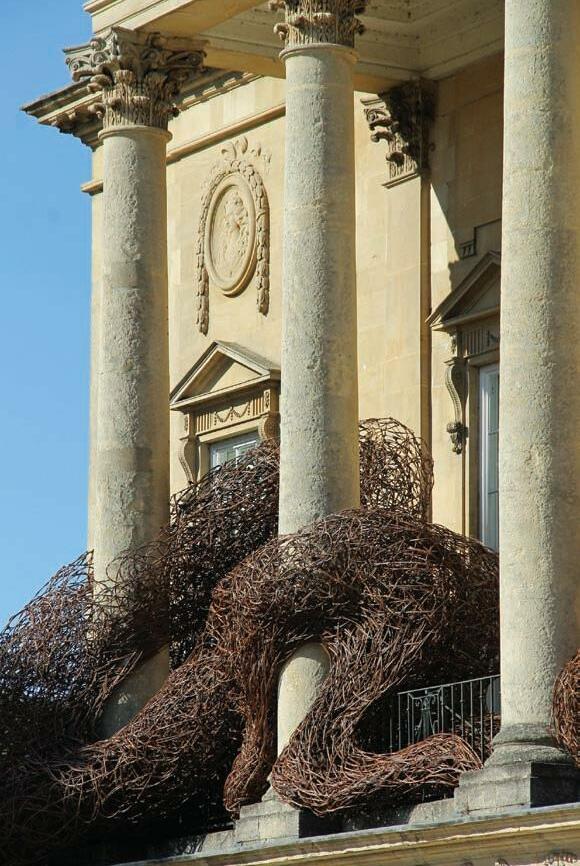
tracked the paths of individual birds within vast flocks believe their findings may have practical applications, such as developing groups of autonomous vehicles which can work in tight formation without colliding. It has also been suggested, for example, that swarms of drones, programmed to behave like starlings, could be deployed over farmland to tend crops.
You don’t need to be a scientist to marvel at murmurations, though, as the growing number of people who flock to fens and reedbeds across Britain to see them proves. One of the best places to see them –and certainly one of the most popular – is on the Avalon Marshes near Glastonbury. But popularity has its downside, and you need to plan your visit carefully.
Arriving early is essential – no later than around two o’clock, because when the car parks are full there’s nothing else for it but to turn round and try your luck another day. It’s also best to avoid weekends and holiday periods. Three other tips – wrap up warm, wear a hat – preferably an old one – and take a torch because it will be dark by the time you get back to the car park.
Although you’ll have a couple of hours to kill before the starlings arrive, there’ll be plenty more to see – lapwings, shovelers, widgeon, teal, kestrels, as well as more elusive rarities such as egrets, glossy ibis, marsh harriers and bitterns. As the light starts to fade, though, all eyes will turn to scan the sky for starlings coming in to roost.
The Starling Hotline will have given details of where they roosted last night, and, although the chances are that they will return to the same spot, there’s always a possibility that they won’t. Even if they do, they may decide to drop straight down to roost. Seasoned murmuration watchers will have many tales of fruitless waits for the birds to turn up, and they are well aware that, if it’s too cold, wet or windy, the birds will dive into the shelter of the marshes as quickly as possible.
If you’re lucky, though, you’ll witness something defying description and almost certainly exceeding expectation – hundreds of thousands of birds seemingly metamorphosed into a single organism controlled by a vast and infinitely playful intelligence, a shape-shifting veil rippling, surging and pirouetting through space at breakneck speed, yet with consummate grace. You may even, as I was on one
unforgettable occasion, find yourself in the eye of a Hitchcockian whirlwind, with the light squeezed out of the sky as the birds cluster ever more densely, hurtling ever lower, as they prepare to roost, with a noise like that of a mighty waterfall.
At such times, it is hard to believe that starlings are on the list of Britain’s most endangered birds. Yet even murmurations on the Somerset Levels are a shadow of what they once were, while mass urban roosts like those at Temple Meads seem gone forever.

As their meteoric rise in North America suggests, however, starling numbers in Britain could, given the right conditions, quickly recover. Sadly, there seems little indication that those conditions will be fulfilled any time soon, or that the damage done to the ecosystem which supports starlings – along with much else – will be reversed. As awareness of the magnitude of what we have so nearly lost grows, though, it can only be hoped that the tide will start to turn. n • akemanpress.com
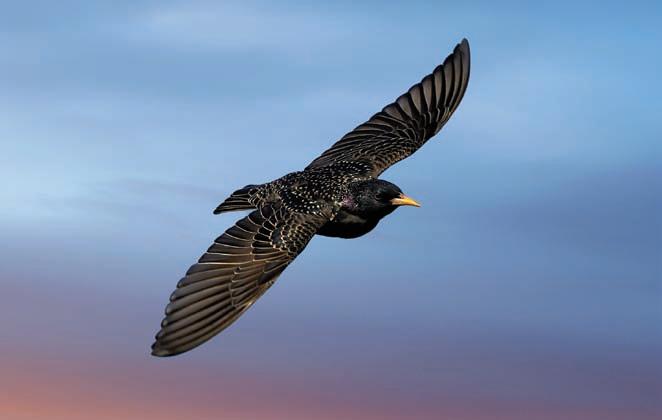
KEY INFORMATION
Starling Hotline: 07866 554142
Avalon Marshes Centre, Westhay BA6 9TT; avalonmarshes.org
Ham Wall National Nature Reserve, Meare BA6 9SX; rspb.org.uk/reserves-and-events/reserves-a-z/ham-wall
Shapwick Heath National Nature Reserve, Westhay BA6 9TT; publications.naturalengland.org.uk/file/62056
Railway Inn, Ashcott Road, Meare (01458 860223). Open from 4.30 Mon, Tue, Thu & Fri; from noon Wed, Sat & Sun. Beer, local cider and filled rolls available.
THEBRISTOLMAG.CO.UK | NOVEMBER 2022 | THE BRISTOL MAGAZINE 43
Starlings at Shapwick Heath
The Common Starling (Sturnus Vulgaris)
Tantalising thai
As Giggling Squid prepares to launch its brand-new cookbook this month, we were lucky enough to take a sneak peek at some of the tantalising thai recipes that await within its pages...
TheGiggling Squid Cookbook is a celebration of Thai food from the muchloved restaurant, famous for their Thai tapas and beautifully designed bold and vibrant interiors. Learn the secrets of their classics and cook up a sharing feast for friends and family, with recipes inspired by Thai legends and owner Pranee’s childhood food memories.
With signature tapas dishes from Golden Money Bags to Candy Pork with Pineapple, and Thai classics with a twist such as Crying Beef, Pad Thai and Salmon Paneang, the Giggling Squid Cookbook celebrates the abundance of ingredients found across Thailand and features favourite fish, meat, curry, noodle and rice dishes from the restaurant.
There are also breakfast, light meal and drink recipes –from spicy teas to zingy cocktails and mocktails – offering choice to enjoy Thai cuisine from morning, noon to night.
With vegetarian and vegan recipes throughout and easy-to-follow instructions, the Giggling Squid Cookbook is your perfect companion to cooking. Recipes are introduced by Pranee, who opened her first restaurant with husband Andy in a small fisherman’s cottage in Brighton 20 years ago. n

• The Giggling Squid Cookbook will be out on 3 November. Published Ebury Press in hardback, £25. The following recipe is extracted from Giggling Squid Cookbook by Giggling Squid. Photography by Haarala Hamilton
Rising Star Red Duck Curry
Ingredients (serves two)
2 duck breasts 30ml vegetable or rapeseed oil 500ml coconut milk
2 tsp salt
6 tbsp palm sugar (or soft brown sugar)
10 Thai basil leaves 10 pineapple chunks 6 green grapes 4 cherry tomatoes
For the curry paste
2 tsp diced red onion
¼ red chilli sliced
4 dried chillies
2 tsp crushed garlic
2 tsp sliced lemongrass
2 tbsp freshly chopped coriander
1 tsp cumin seeds
Giggling Squid Clifton; 34 Princess Victoria Street, Clifton, BS8 4BZ
There’s real love and effort that goes into cooking this dish properly, but the flavour of the sauce, sweet and rich, works beautifully with the crispy-skinned duck, making it a long-time Giggling Squid customer favourite.

Method
1. Place the duck breasts, skin side down, on a griddle pan for six minutes to render the fat. Turn the duck breasts over and cook for a further four minutes. Remove from the pan and leave to rest for 10 minutes.
2. Put all the curry paste ingredients in a mortar and pound to a paste with the pestle. Alternatively, whizz together in a small food processor.
3. Pour the oil into a wok over a medium to high heat, add the curry paste and cook for two to three minutes until it releases the oil from the sides; this cooking method helps to remove the rawness of the curry paste and also releases the flavour of the herbs.
4. Add the coconut milk, salt, sugar and Thai basil and bring to a simmer until the sugar dissolves, then add the pineapple, green grapes and tomatoes and cook for a further minute.
5. Slick the duck breasts and divide between two plates, pour over the sauce to cover and serve with coconut rice.
FOOD
44 THE BRISTOL MAGAZINE | NOVEMBER 2022 | No 216
Boxlocal can supply treat filled hampers for Bristol businesses who love to celebrate local or for individuals looking for the perfect unique gift. Quote: boxlocal10 for 10% off orders placed before 8th November 22. Order at: boxlocal.co.uk




THEBRISTOLMAG.CO.UK | NOVEMBER 2022 | THE BRISTOL MAGAZINE 45
Christmas Hampers filled with locally sourced Bristol treats
BRISTOL UPDATES
NEWS FROM LOCAL BUSINESSES AND COMMUNITY ORGANISATIONS

Huboo appoints new Chief People Officer

Huboo –one of fastest growing global fulfilment technology providers –has boosted its Senior Management Team with the appointment of Gareth New as Chief People Officer. New will deliver organisational change and developmental activities to enrich the team and culture of the rapidly expanding business.
Gareth New brings 15 years of experience working in people, culture and leadership industry positions. His previous roles at energy firms SSE (now OVO) and Ecotricity saw him enrich the cultures of these FTSE-100 companies - something he is looking forward to developing in his new post at Huboo as it undergoes further global expansion.
Huboo is set to move into a host of key territories in 2022, capitalising on recent milestone growth across the Netherlands, Spain, Germany and the UK. The company has secured over £100m of investment since its launch in 2017 and increased its headcount by 341 employees in just 12 months.
• huboo.com
One-to-one sessions now available
Talkativity is now offering weekly one-to-one counselling sessions for those affected by cancer. These sessions will enable people to express their fears in a safe space, help them to come to terms with the emotional strain and face the changes in their lives. Talkativity’s service operates entirely online so it can offer expert support no matter where people are in the country and there is no time limit. Each session is 50 minutes and costs £55. Contact Talkativity at whatever point you need support and keep talking to your counsellor for as long as you need. Talkativity is a newly-established Community Interest Company that donates all its profits to local charity We Hear You – in order to help support their free cancer counselling sessions.
• talkativity.co.uk
Gas Girls partner with St Pauls Carnival

Bristol Rovers Women’s (AKA the ‘Gas Girls’) have launched a special edition away kit in partnership with St Paul’s Carnival. The brand-new away kit is the third kit where the ‘Gas Girls’ have donated the front of shirt sponsorship to an organisation or charity that fits within the ethos, culture and values of the football club.
The team is also delighted to have reggae musician, television personality, celebrity chef, author and Chair of St Pauls Carnival, Levi Roots supporting the launch of the new shirt and partnership. Since its beginnings back in 1968, St Pauls Carnival has grown in size and reputation to become one of the UK’s most accessible and inclusive events, attracting thousands of people to the area. Carnival 365 brings the history and heritage of Carnival to communities all year round while their Schools Programme and community work sees the history and traditions of Carnival bring people together throughout the year. Bristol Rovers Women’s FC will be working alongside St Pauls Carnival to support their community initiatives, engage with more young people within the area through football and be a part of the Carnival celebrations in 2023.
• bristolroverswomensfc.com
NEWS FROM THE CITY 46 THE BRISTOL MAGAZINE | NOVEMBER 2022 | No 216
Expert Business help and support from four Bristol Libraries including Southmead
With so much economic doom and gloom surrounding us, it might be easy to assume that right now few are being tempted to start their own business or develop one that is already running.
However, our experience at BIPC Bristol over the last ten months actually points to an upsurge in business activity at the very earliest stages.
We are BIPC Bristol (Business and Intellectual Property Centre). We have purpose-built business centres based in four Libraries. The main BIPC at Central Library and three local BIPCs at Southmead, Junction 3 and Knowle Libraries.

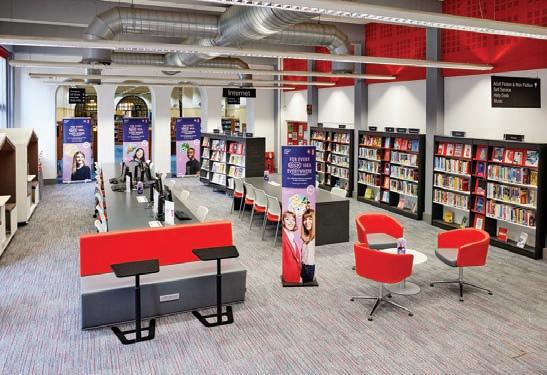
At BIPC Bristol we support entrepreneurs, start-ups and small and medium sized enterprises (SMEs) to start, protect and grow a small business.
We offer a range of free business services across four main themes.
•General business help and support including one-to-one sessions with advisors and experts, workshops and networking events
•Intellectual Property guidance and help
•Free access to business intelligence resources and databases
•Space to meet, study and research business planning

The general business help covers a wide range of options including start-up business sessions and business planning from how to write one to reviewing what you have. We have a range of marketing and PR options and we run a monthly full day course entitled 'Thinking about business'.
We also, as our name denotes, have expertise in Intellectual Property covering areas like copyright, design, trademarks and patents. We have trained BIPC staff giving clinics and webinars and we also give access to monthly sessions with an IP attorney.
Additionally, we also offer access to a broad range of sophisticated databases and market research tools to give access to company data and funding opportunities as well as marketing insights and business profiles.
All of this help and access is FREE.
Central Library is staffed and open daily. The three locals are staffed at least one day per week. To find out more and book a session go to: bipcbristol.eventbrite.co.uk
For general information about BIPC Bristol go to Bristol.gov.uk/BIPC
Bristol Car Consultant
Looking to buy a new car or sell your current one? Owner of Bristol Car Consultant, Duncan Wood, is here to help...
Duncan Wood, a local independent car specialist, has been running Bristol Car Consultant for over eight years, helping his clients save both time and money and reducing the associated risks when buying or selling a car.
Whether it be securing a safe, reliable vehicle that is cheap to insure for a first-time driver, searching for a sports car to a certain specification, hunting for an estate car with must-have options within a challenging budget, or helping to release significant funds through selling a nearly new car, Duncan has the experience and expertise to do it efficiently and effectively.
Boasting an impressive portfolio of successful projects with testimonials to match, Duncan is passionate about motoring, finding his clients the best car for the required purpose at the best possible price. Here, Duncan offers insight and advice into the current market…
Are you looking to sell your car? Used cars are in high demand! Used cars remain in high demand in the motoring trade due to the ongoing supply chain issue relating to key parts, meaning that new cars are taking longer to be made. Duncan suggests using this to your advantage, particularly now to ease your day-to-day finances during the ongoing cost of living crisis. For example, he recently helped a client sell a nearly new car for only slightly less than the price they paid for it and buy a slightly older car that met their motoring needs better, earning them nearly £10,000.
Are you currently driving a leased car? You could be sitting on a decent profit!
With the value of second-hand cars currently sky high, Duncan believes that customers should consider their end of lease options carefully. “The default position for many is to simply move on to the next lease. If this is you, you need to be aware of the true value of the vehicle,” says Duncan. “Many policies will allow you to keep the car at the end of the lease if you pay a pre-agreed sum. This amount may well be less than your lease car’s now inflated value.” With that said, it’s important to consider whether to buy your leased car and sell it at a decent profit, or use the equity to negotiate hard on the next lease contract. For example, in September, Duncan helped a client to buy the car at the end of their lease and then sell it a week later at a profit of nearly £5,000.
Is an electric car as cheap to run as you thought?
According to Which? News, the energy price cap adds £165 to charging an electric car. If you are thinking of changing to an electric vehicle next, Duncan’s advice is worth considering. Focusing primarily on the running costs rather than the benefits of electric vehicles, such as tax incentives for business users or how clean an electric vehicle is in terms of lack of emissions in our communities, Duncan says: “The rise in electricity prices mean that electric cars may not be as cheap to charge as you think and, in some cases, they can be more expensive to ‘fuel’ than their internal combustion-engine equivalent.” n
• To find out more about how Duncan could help, visit his website at: bristolcarconsultant.co.uk. Alternatively, call or email Duncan to discuss your needs with no obligation: 07983 262310 or duncan.wood@bristolcarconsultant.co.uk
THEBRISTOLMAG.CO.UK
MOTORING
| NOVEMBER 2022 | THE BRISTOL MAGAZINE 47
promoted content
BRISTOL UPDATES
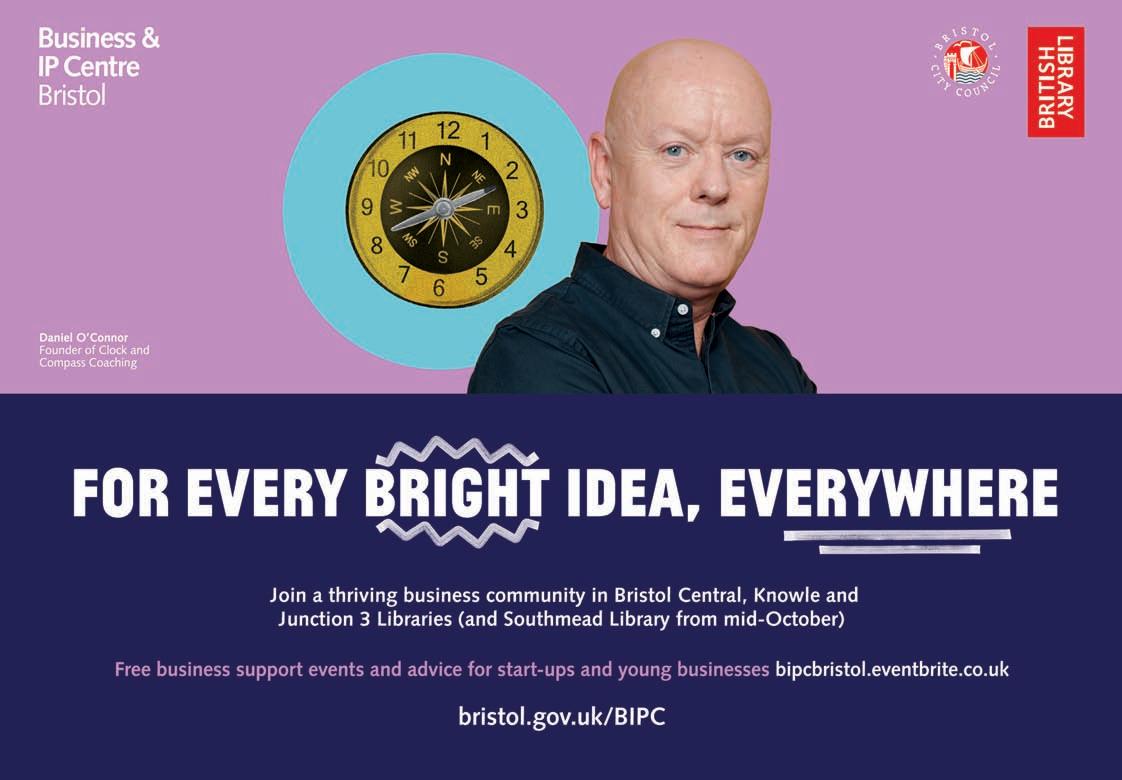
Celebrating the life and work of aerial photographer Harold Wingham
Historic England’s Archive and the friends and colleagues of the pioneering aerial photographer Harold Wingham have come together to celebrate his work. The Harold Wingham Collection of almost 2,000 photographic negatives and corresponding prints has been made available online to the public for the first time, and features in three new digital galleries exploring key themes in Wingham’s work.
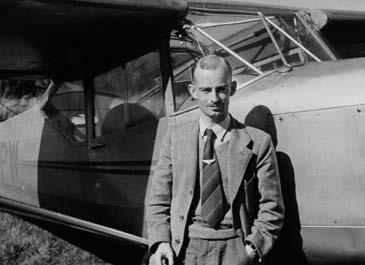
The collection is divided into 86 flights, which were flown between April 1951 and July 1963. Wingham used hand-held aerial reconnaissance cameras, which could produce images with excellent resolution, hence the quality of detail captured in his photography.
The collection is celebrated for its mix of architectural, archaeological and industrial subjects and views of villages and
towns in the early post-war period, offering a unique insight into the changing landscape of the West and South West of England.
In 1957, Harold Wingham contacted the National Buildings Record (NBR), one of the predecessors of Historic England’s Archive, to offer aerial photographs of ‘big houses, castles and similar subjects’. The NBR were impressed with Wingham’s excellent photographs and commissioned 51 prints, establishing the basis of the collection. In January 1970, the Royal Commission on the Historical Monuments of England (RCHME), a predecessor of Historic England, renewed its acquaintance with Harold, requesting more of his photographs to enhance its Air Photographs Library. Over the course of the next few years, the RCHME made copies of around 1,700 of Harold’s photographs and donations of negatives were made to the RCHME in 1991 and 1998.
In November 2021 the Historic England Archive, responsible for the curation of major collections of national importance covering archaeology, architecture, social and local history, learned of the recent death of Harold Wingham, a ‘shy, modest and self-effacing man’ who had ‘made a unique contribution to the archaeology of Gloucestershire and far beyond.’
• To search the Harold Wingham Collection on Historic England’s website, visit: historicengland.org.uk
NEWS FROM THE CITY 48 THE BRISTOL MAGAZINE | NOVEMBER 2022 | No 216
NEWS FROM LOCAL BUSINESSES AND COMMUNITY ORGANISATIONS



THEBRISTOLMAG.CO.UK | NOVEMBER 2022 | THE BRISTOL MAGAZINE 49
Autumn leaves
The most notable autobiographies of this autumn as recommended by the brilliant team at Gloucester Road Books
How To Be A Football Manager by Ian Holloway







Anote
from the team: “Our primary aim is that the shop be a fascinating place to explore. Some of the subject sections are a little broader than they might be elsewhere –for instance our ‘Time and Place’ section encompasses books on History, Travel Literature, Geography and Reportage. We also have a significant focus on titles published by small independent presses. There are lots of really brilliant small publishers putting out incredibly exciting books, and we want to help get these out into the world. The stock is carefully chosen and constantly changing, so even if you pop in every week there will always be new books to find.”
Visit Gloucester Road Books’ website: gloucesterroadbooks.com. Follow the bookshop on Instagram at: gloucester_rd_books or browse the collection in store: 184 Gloucester Road, Bishopston, BS7 8NU. Open Monday –Tuesday 9.30am –5pm; Wednesday –Saturday 9.30am –6pm
Novelist As A Vocation by Haruki Murakami

Murakami opens up about his own creative process in this idiosyncratic (it is Murakami, after all) book about what it is to be a writer, and what the novel means to society. He looks back to his own beginnings as a writer and asks the question ‘what does it mean to write?’
Chris Floyd has been photographing the biggest names in music and public life for thirty years. This visual memoir includes his photographs and anecdotes of working with, among others, Paul McCartney, Tina Fey, Yoko Ono, David Bowie, Bill Murray, Vivienne Westwood, Iggy Pop, and David Attenborough. We are very lucky to be hosting an exclusive Q&A with Chris on 12 November.
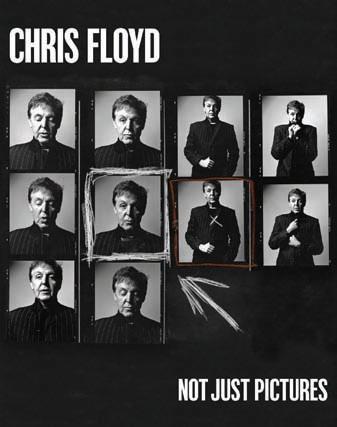
This is a must for Bristol Rovers fans. Holloway played well over 300 times for Rovers in his senior career, and spent five years with the club as manager. This book is about Holloway’s experiences of the day-to-day madness of football management –and if his press conferences are anything to go by, it should be a riot. Ian Holloway will be joining us for an event at Rovers’ Memorial Ground on 3 November at 8pm.
A Book of Days by Patti Smith

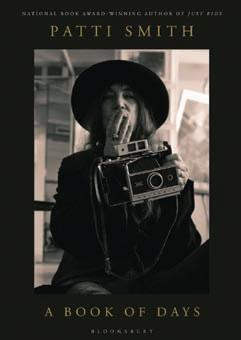
Photographs, thoughts, memories and musings make up this record of the daily life of the iconic musician, poet, writer and performer. The entries vary from playful to profound, and build up a gloriously rich picture of a life lived in pursuit of art.
Toward the end of his life, Pratchett had intended to write his own autobiography but simply ran out of time. Instead, his longtime assistant Rob Wilkins has drawn upon Pratchett's unfinished work to produce this biography of the man who lived a truly unique life and left behind an astonishing body of work.

BOOKS
Not Just Pictures by Chris Floyd
50 THE BRISTOL MAGAZINE | NOVEMBER 2022 | NO 216
Terry Pratchett: A Life With Footnotes by Rob Wilkins


THEBRISTOLMAG.CO.UK | NOVEMBER 2022 | THE BRISTOL MAGAZINE 51
The rise of women’srugby
Since women’s rugby emerged from the pandemic, the sport has seen an unprecedented rise in participation figures, attracting record-breaking crowds to stadiums around the world. As the new season kicks off, we catch up with some of the Bristol Bears Women to find out more about the team, the sport and the future of the game...
AfterCovid pushed back the 2021 Women’s Rugby World Cup in New Zealand to the autumn of this year, with the tournament now running from 8 October to 12 November, rugby fans around the world have had their eyes firmly fixed on the games taking place in Auckland and Whangārei. In fact, so much so that a record-breaking crowd filled New Zealand’s iconic national stadium at Eden Park during the opening match. It was the first time in history that Eden Park had reached capacity for a women’s sports event. The attendance more than doubled the largest ever crowd for a standalone women’s sports event in New Zealand.
As 12 nations battle it out for the trophy, including Wales, Scotland and England, who are red-hot favourites to win, Bristol Bears fans will spot a number of familiar faces in the line-ups. Six Bears were chosen to represent the Wales Women and three for the Red Roses –all of whom are doing Bristol proud.

Back home, the Bears have been dominating the pitch in the first few games of the Allianz Cup, preparing for the opening match of the Allianz Premier 15s during the Women’s Weekend of Sport at Ashton Gate on 19 November.
Whether the players are currently home or away, one thing binds them together: their passion for their sport. As women’s rugby continues to grow and attract more fans, spectators and players to the pitch side, we sit down with co-captain Amber Reed and players Courtney Keight and Hollie Cunningham to find out more about the women’s rugby team we love best.
Meet Amber Reed, co-captain, centre
TBM: Tell us about your journey as a professional rugby player, the clubs you’ve played for and where your love for the sport first began?
AR: This is my 14th season at the Bristol Bears. I joined as an 18-yearold back in 2009 so Bristol has been my only Premier club. I first got the opportunity to play rugby at school when one of our teachers at Colston’s (now Collegiate) set up a girls’ team. When I first joined the Bristol Bears, I was in the England U18s and had aspirations to try and get into the U20s. For me, it was looking for the best local club in the area, which was obviously the Bristol Bears because they were playing in the Premier. I went along to a training session and managed to get selected for the team.
How has it been playing for the Bears and leading the team as co-captain?
It’s been really good. I’ve been captain since 2015. I co-captained with Clara Nielson before she left for Exeter and then I’ve been cocaptaining with Abbie Ward for the first time. I’ve known her for a long time, played with her at international level and now club level and she is a fantastic leader both on and off the pitch. She’s also one of the best line-out operators in the game, men’s or women’s, so to co-captain
alongside her is brilliant. We balance each other out really well in terms of what we bring to the team on and off the pitch.
Have you noticed an explosion of interest in women’s rugby over the last few months/years? What has that been like for you as a player? Definitely. I think since Covid when we weren’t allowed any spectators for about a year and a half, there’s been an even bigger difference between pre Covid and post Covid. We were lucky enough to still be able to play without spectators and it was being streamed so it was still sparking that interest and getting people wanting to come. Even at club level our team manager said we’ve seen a 230% increase in attendance from pre Covid. Then again on international level during the Six Nations, we stepped out on to the pitch to 16,000 people at Mattioli Woods Welford Road Stadium against Ireland. The atmosphere that that brings is incredible and that’s only going to grow.
With the figures in New Zealand, people are tuning in and keeping up to date with how the teams are getting on and it will hopefully inspire people to come to local club games. The more people we can get to local club games, the more people will come to six nations games
SPORT 52 THE BRISTOL MAGAZINE | NOVEMBER 2022 | No 216
Co-captains Amber Reed (left) and Abbie Ward
and international games, which will hopefully mean more people will come to the 2025 Rugby World Cup in England. The aspiration is to sell out Twickenham for a final. As players, we definitely appreciate the support of the crowd. When you’re on the pitch and things are happening and you hear the roar of the crowd, it’s something you can’t really describe in words, it feels incredible.
Bristol Bears strive to promote, engage and inspire girls to kick start their career in the sports industry. During the summer, the Bears became the first rugby club to partner with the #HerGameToo campaign – why is this work so important to you and the team?

I think it starts from the top down. Steve Lansdown is not only a massive advocate for the professional game but he wants to inspire the community. Every branch of Bristol Sport – the Bears, the City, the Flyers – all go out and want to win and want to put on a performance and be role models for the community. Being involved with #HerGameToo is about breaking down stereotypes, showing that rugby is accessible. It’s a big part of our role to go out and coach and do appearances and speak to young fans and players and be present – if you can see the role models that inspire you, it makes it more real. Seeing the person that you aspire to be and have the opportunity to ask them questions and be coached by them and learn from them, it just makes it a lot more powerful – we don’t just want to be on the other side of a barrier or on TV.
I’m also a qualified teacher. My love for teaching is based around wanting to inspire and help children reach their potential and that fed into the Bears work really well. Some kids don’t have aspirations to play for England or Wales and that’s fine but helping them find something that they enjoy and gets them active and helps them make friends – that’s just as important as inspiring the next Red Rose.
How are you and the team preparing for the Women’s Weekend of Sport at Ashton Gate in November and what are you most looking forward to?
We’re really excited, it’s a massive weekend for Bristol Sport and that’s
part of the beauty of being part of this umbrella. We have lots of different sports that we can interact with, learn from and support and it does feel like a family. You’re playing for the same community, you feel connected. To have the opportunity to play at the same venue and join up with another sport is fantastic. It doesn’t matter what sport you play but to showcase two incredible womens’ teams and the talent they both have is amazing. This is the first time the Weekend of Women’s Sport is taking place and hopefully the first of many.
For the Bears, we want to win the next few games so we can secure a home semi-final in March, which is when the cup starts again after this block.
What are your hopes for the future of women’s rugby?
The professional side of the game is still very much in its infancy, but I would love to see that grow and see more clubs have a professional set up. Even though some of us are contracted by England at the moment, I think we’re still 30 years away from having fully-paid club teams. I think the quality of coaching that young players are getting now is good and will just continue to grow. In the years to come, I would love to see more young girls in the area play for Bristol Bears at a professional level and I’ll be in the stand cheering them on.
Meet Courtney Keight, wing
Tell us about your journey as a professional rugby player, the clubs you’ve played for and where your love for the sport first began?
I started rugby quite late in life, I actually started when I went to university at the age of 18. I was told by my PE teacher to try it when I went to university so I did and I haven’t looked back. I played for my university team and then had a few games for Bon-y-maen before playing for Swansea Whites. I was picked up by the Welsh Rugby Union in a final for Swansea Whites and got selected for Wales 7’s, Osprey’s and then Wales 15’s. When Covid hit, we were encouraged to join a Premier 15’s team as Welsh rugby wasn’t going to return for a very long time, so I was fortunate enough to have a phone call with the Bristol Bears and have been there for the last three seasons.
THEBRISTOLMAG.CO.UK | NOVEMBER 2022 | THE BRISTOL MAGAZINE 53
Courtney Keight
How has it been playing for the Bears? What do you enjoy the most/what have been particular highlights for you?
I have absolutely LOVED playing for the Bears. I really enjoy the culture that comes with playing for Bristol. Everyone supports each other to be the best version of ourselves, whether that is on or off the pitch and for me personally this has developed me in so many different ways. My highlights have been playing in Ashton Gate against Quins (the crowd was incredible) and captaining the Bears team in our first cup Game this year against Sale – it was a real honour.

Have you noticed an explosion of interest in women’s rugby over the last few months/years? What has that been like for you as a player? Absolutely, I think there is a real buzz around women’s sport at the moment, especially women’s rugby and I definitely think we have the Lionesses to thank for that. For me, I find it incredibly inspiring to see where this can go and for us to be able to leave a legacy for the young girls and boys wanting to take part in rugby would be amazing. I have noticed that more and more people are asking questions about rugby, recognising us as players, wanting to find out about our fixtures, etc. and it's just such an exciting time to be a women’s rugby player.
Why is Bristol Bears’ community work so important to you?
This is incredibly important to me and to us as a team as the #HerGameToo campaign aims to eradicate sexism and promote equality in sport, which is something very close to all of our hearts. We are all very lucky to be a part of Bristol Bears as they truly do everything they can to promote equality. We aren’t treated as the Bears Women when we come through the doors of the High Performance Centre – we are all just the Bears and it’s massively important. I have had Pat Lam speak to me about tries I have scored, World Cup selection, my day-to-day job and that’s something I haven’t experienced before, a Director of Rugby care so much about every individual, male or female.
How are you and the team preparing for the Women’s Weekend of Sport at Ashton Gate in November and what are you most looking forward to?
From a rugby standpoint, we are training extremely hard to ensure the quality of rugby we deliver on that weekend is entertaining and keeps people wanting to come back and watch us deliver that week in and week out. We are trying to promote the game as much as possible on social media too, so that we can showcase our rugby style to as many rugby fans as possible! It is a weekend of sport as we are coming together with Bristol City and we are hoping that this will attract both rugby and football fans to both games for this weekend and for the future. The whole experience of playing at Ashton Gate in front of an incredible crowd is just so exciting so I would say I am looking forward to training hard in the run up to the game, to do my best to get a slot in that match day team.
What would you say to young girls in Bristol interested in a career in rugby – what advice would you pass down?
Firstly, I would say that you can do whatever you put your mind to, don’t ever doubt your ability. We have had people playing for Bears from every single background imaginable, there shouldn’t be any barriers that will stop you playing. We have people who have played rugby since the age of five or people who picked up a rugby ball in University (such as myself), so it’s also never too late to start. If you ever have any questions about starting rugby, then stay behind after one of our matches and talk to us (we are very friendly and would love to help).
What are your hopes for the Bristol Bear’s this season?
I hope that we build on from our incredible season last year in terms of results. We have had an excellent pre-season and first two fixtures in the Cup, so to keep taking steps forward would be the best. I really hope that we can get some more young girls and boys playing rugby too by playing well each week and showing people what we can achieve as a
What are your hopes for the future of women’s rugby?
Well, we have touched upon the record breaking crowds in the World Cup, the amazing #HerGameToo campaign and the Women’s Weekend of Sport in Ashton Gate and it’s all just so positive and heading in the right direction. So, my hopes are that this continues and that our support gets bigger and better, and we can keep encouraging young girls and boys to participate in rugby all across the world. We have the responsibility to do what we can now to improve the game across the board, and leave a legacy for the girls who will follow in our footsteps and I think
Meet Hollie Cunningham, second row
Tell us about your journey as a professional rugby player, the clubs you’ve played for and where your love for the sport first began?
I started playing when I was in Year 6. My primary school teacher at the time was the head coach of a local girls’ club in Bristol so my journey started there. I then played for St Mary's Old Boys Rugby Football Club for three years and then moved to Cleve Rugby Football Club where I moved up the age groups. When I was 18, I started playing for Bristol Bears – I’m in my sixth season now.
How has it been playing for the Bears?
I love how we are as a squad, regardless of whether you’re starting every week or you are part of the wider team, we are very much like a family unit. When we’re in high pressure situations on the pitch, we always band together, whereas other teams seem to splinter. That sense
SPORT 54 THE BRISTOL MAGAZINE | NOVEMBER 2022 | No 216
Hollie Cunningham
of family also transfers across to Bristol City Women’s. There is a sense of competitiveness between football and rugby but at the end of the day, we are all there to play our sport and inspire the community –it’s definitely familial.
Have you noticed an explosion of interest in women’s rugby over the last few months/years? What has that been like for you as a player?
During my first season with the Bears back in 2017, we played at Cleve and I think we were lucky to get 100 people watching us. Last season, our average attendance for a game was 750 people – that leap is brilliant because not only do you get more people watching but you get more interest in the game and more players coming through and then suddenly the quality of rugby spikes. You also start to attract the interest of companies and sponsors, which is phenomenal. The game has taken off massively in the last three years and I can’t see it slowing down any time soon.
Why is Bristol Bears’ community work so important to you? It’s really important, regardless of whether you’re male or female, that you have equal opportunities to enjoy the game. I think #HerGameToo highlights how far we have come as a sport but equally how much further we have to go. Making sure that there is recognition for the players and staff members that put a lot of time and effort in to something that is technically classed as a hobby –because we’re not all paid – is a huge step forward. It’s exciting and it’s something to look forward to. Last season, I was studying for a fulltime masters, as well as working and playing for the Bears. The commitment is massive but because of the environment at the Bears, it’s definitely worth it, you are surrounded by effectively a second family.

How are you and the team preparing for the Women’s Weekend of Sport at Ashton Gate in November and what are you most looking forward to?
The Women’s Weekend of Sport highlights the calibre and the quality of the players on both the women’s football and rugby teams, but equally it is such a good opportunity for young girls to physically see
where they can get to if they work hard.
In terms of the squad preparing for this season, each week there is a slow, steady but sure build in terms of performance in training and I think everyone would agree that each week we are improving on the pitch. When it comes to the first league game in November, we will have four games under our belt, and we will be absolutely flying. I don’t doubt that a really good show will be put on for those that attend Ashton Gate.
What would you say to young girls in Bristol interested in a career in rugby – what advice would you pass down?
I would say do whatever makes you happy. There’s still a stigma around girls playing rugby, we are playing a male-dominated sport and we do face criticism but we have to do what makes us happy. If running around on a muddy pitch for 80 minutes is the thing for you, then you’ve got to do it. If you work hard and enjoy yourself, you’ll get to wherever you set your heart to.
What are your hopes for the Bristol Bear’s this season? Our focus is to be finalists and to improve on our third place finishing last year. We want to really push to be in that final this year and win the Allianz Cup – that is our main target.
What are your hopes for the future of women’s rugby?
On the back on the World Cup, I think we will see a massive increase in participation in women’s rugby. The set up in England is arguably the best in the world in terms of funding and the structures that are in place. England is currently in favour to win the tournament and I think that would be a massive incentive for young girls. Equally, I think it will interest people who might not necessarily know much about women’s rugby to tune in and think this is great, I might go down and watch the Bears play at the weekend – it’s so exciting to watch the sport grow. n
• Stay up to date with the Bristol Bears via their websites and social media channels: bristolbearsrugby.com
All images courtesy of Bristol Sport
THEBRISTOLMAG.CO.UK | NOVEMBER 2022 | THE BRISTOL MAGAZINE 55
Bristol Bears Women’s
team



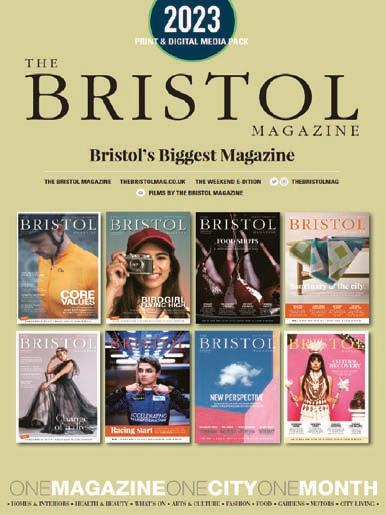

56 THE BRISTOL MAGAZINE | NOVEMBER 2022 | NO 216 OR CONTACT US ON 0117 974 2800 or EMAIL: SALES @ THEBRISTOLMAGAZINE.CO.UK Thinking of promoting your business? Our 2023 media pack can be viewed online SCAN THE CODE TO FIND OUT MORE ON OUR 2023 MEDIA PACK
James Scrimshaw of CURA CLINICAL explains how new technologies are providing effective answers to people’s pain and suffering
MBST: Treating spinal arthritis
Ann came to my clinic in May having suffered back pain for 30 years, getting worse in the last 10 years with arthritis to the facet joints and disc degeneration. Osteopathy and massage were no longer effective and it was really impacting her mobility, sewing and life in general. We decided to go with a course of MBST to target healing of her joint cartilage and we’re glad we did. At her follow up in early October she’s 85% better. Standing, walking, mornings and most importantly seeing are all now possible without giving it much thought which is exactly what we wanted. Her back pain is very much now at the back of her mind and as you can see she’s pretty delighted by the result.


MBST is remarkable in that it reliably stimulates a natural healing process in specific tissues that over time creates huge quality of life changes to patients for whom there are few other options. It’s completely safe and a lovely process to go through.
Lynne is a dear patient that I’ve been managing for low back pain over many years with hands on care. In the last 2 years however, her condition became much more painful and less responsive and after some scans we found significant multi-level disc and joint degenerative change with associated forward slippage of her vetebrae causing severe sciatica. Walking was extremely difficult and day to day pain was very high. The options were either surgical fusion or try disc AND joint MBST to attempt to naturally heal and stabilise her condition.
We chose the latter/least invasive option to begin with and the results after 3 months have been life changing. Still early days so things should really stabilise over the next 9 months but her pain both in the back and leg is now but a minor issue. We couldn’t be more pleased at this stage and her prognosis is looking really good based on previous similar cases I’ve managed in this way.
MBST uses exactly the same technology as MRI scanning, just without the detector coils and imaging software. MBST stands for Molecular Biophysical Stimulation.

It was discovered by a German doctor who noticed that some of his MRI patients had reduced symptoms following their MRI scans. He then assembled a team of biologists and physicists to research these positive effects at a cellular level.
Cells that had not functioned properly due to damage, were stimulated in such a way by the energy transfer that they could again fulfil their original tasks.
It does this at cell level in a number of ways:
•Optimising cell oxygen levels

•Improving cell energy production
•Optimising intercellular signalling pathways

•Reducing inflammatory mediators
•Readjusting cell circadian clock - leading to less cell death and cell reproduction
This translates to you and I as a healing process in the tissue the energy is applied to, which leads to a reduction in pain and an increase in the natural mobility and lifestyle of the patient without any need of invasive therapy.
Obviously there are limitations of the effects relating to a number of factors such as severity and complexity of a patient’s case, however the technology is constantly being improved and we’re getting better at selecting the right patients and conditions in order to get higher success rates and better overall results. ■
CHRONIC PAIN MANAGEMENT
MBST is an award-winning innovation designed to manage long-term injury and osteoarthritis. To discuss your treatment, contact Cura’s Clinical Director, James Scrimshaw today 0117 959 6531 curaclinical.com
Season staples
Explore the limited-edition luxuries and soon to be staples as selected by Layla Touati, Harvey Nichols assistant beauty retail manager and MUA. Take your pick of the latest beauty to drop, all available at Harvey Nichols Bristol; harveynichols.com

TOM FORD Lost Cherry Eau De Parfum Set 50ml, £265


Indulge in Lost Cherry, a full-bodied, warm and spicy gourmand scent coated in a candy-like gleam. This set is presented in recyclable, keepsake packaging and includes Lost Cherry Eau De Parfum 50ml and Lost Cherry Eau De Parfum Travel Spray 10ml.
OLAPLEX Hair Repair Treatment Kit, £60
Celebrate your strength with the scientifically proven routine to repair damaged hair, reduce breakage and split ends, and make hair visibly stronger. The Hair Repair Treatment Kit features OLAPLEX’s most powerful bond-building treatments and the best-selling nourishing and hydrating shampoo and conditioner to maintain your healthiest hair.

Fenty Eau De Parfum 75ml, £145
Exclusive to Harvey Nichols. Fenty Eau De Parfum is a deeply intimate fragrance that’s complex, vibrant, raw, spicy and sweet all at once.
Magnolia, musk, tangerine and Bulgarian rose create a sensual warm floral.
Finished with unexpected touches of vanilla, blueberry, coconut, geranium and patchouli, Fenty Eau de Parfum expresses itself uniquely on each wearer for a one-of-akind scent that is all heart and pure soul.
COCO AND EVE Glow Figure Body Moisture Whip, £35

The ultimate body indulgence. Coco and Eve’s rich, nurturing Glow Figure Body Moisture Whip leaves skin buttery soft whilst amino acids fight cellulite and deeply hydrate and firm from within for more suppleness.
Harvey Nichols Let it Glow Hamper £195
Nothing is higher on our wish list than a glowing complexion. Perfect for the savvy skincare lover, our newest Let It Glow Hamper offers an expertly curated collection of products to keep their complexion looking healthy and radiant right through to the new year.
HOURGLASS
Ambient™ Lighting Edit Unlocked £78
Exclusively available for Holiday 2022, this Hourglass palette features three new Ambient Lighting shades to create your perfect flush and a lit-fromwithin glow.

Designed by London-based artist Katie Scott, the limited-edition packaging
celebrates the delicate grace of the butterfly. Hourglass will donate 5% of annual profits from this collection to the Nonhuman Rights Project, a U.S. organization working to secure fundamental rights for animals.
BEAUTY 58 THE BRISTOL MAGAZINE | NOVEMBER 2022 | NO 216
YOUR HEALTH MATTERS

Men have a poor reputation when it comes to looking after their own health. On average, they see a GP half as often as women do, but men in the UK are paying the price for neglecting their health, as more than 100,000 die prematurely every year. It’s important to be aware of changes to your health, and see your GP immediately if you notice something that’s not right.
Here are the top 5 things men need to look out for:
A lump on your testicle
Testicular cancer is unusual in the fact that it most commonly affects younger people, aged 15 to 44. Over 2,000 cases of testicular cancer are diagnosed each year in the UK, and regular self-examination is recommended. If you notice a lump or swelling in your testicles, or feel a heaviness or dull ache in your scrotum, see your GP. Most testicular lumps are not cancer, but it is essential to have any abnormalities checked. Early detection gives you a much higher chance of a positive outcome.
Moles
Check your moles regularly and be aware of any change in colour or shape, or if they start bleeding. Most changes are harmless and are due to a non-cancerous increase in pigment cells in the skin. See your GP if a mole looks unusual or becomes itchy. It can then be
checked and removed if necessary. To minimise your risk of skin cancer, during the summer months, avoid exposure to the sun between 11am and 3pm. Cover up and use sunscreen with a sun protection factor of at least 15 when you’re in the sun.
Feeling depressed
If you’re depressed, you may lose interest in things you used to enjoy. Depression is a real illness with real effects on your work, social and family life. Treatment usually involves a combination of self-help, talking therapies and medication. Depression is more common in women, but men are more likely to commit suicide. This may be because they are more reluctant to seek help. Financial stress, job insecurity and debt can all affect your mental wellbeing, but the simple act of talking to someone face-to-face about how you're feeling can be an enormous help.
Trouble urinating
When the prostate is enlarged, it can press on the tube that carries urine from the bladder. This can make it hard to pass urine, which can be a sign of prostate disease, including cancer.
In the UK, prostate cancer is the most common cancer in men, with more than 30,000 diagnosed with it every year. Other symptoms include pain or burning when you pass urine and frequently waking up in the night to visit the bathroom. If you have any of these symptoms, see your GP. The prostate gland is
crucial to your sex life, so get to know your prostate and what can go wrong with it.
Impotence
Most men encounter problems getting or keeping an erection (impotence) at some point, but you should see your GP if your erection problems last for several weeks. It’s not just your sexual health that could be at risk. Impotence, also known as erectile dysfunction, can be a sign of more serious conditions, such as heart disease, diabetes or high blood pressure. Generally, lifestyle changes, such as losing weight and exercise, can correct the problem, although some men may need medication such as Sidenafil (more commonly known as Viagra).

If you’ve been experiencing any of these symptoms, the Consultant team at Nuffield Health Bristol Hospital includes Urologists, Dermatologists and Clinical Psychologists. If you would like to book an appointment, call 0117 911 5339, or visit our website.
Nuffield Health Bristol Hospital
3 Clifton Hill, Bristol BS8 1BN nuffieldhealth.com/hospitals/bristol
 The annual Movember charity campaign highlights men's health awareness every November, so here, Nuffield Health Bristol Hospital breaks down the five key health issues and their symptoms which you simply can’t afford to ignore.
The annual Movember charity campaign highlights men's health awareness every November, so here, Nuffield Health Bristol Hospital breaks down the five key health issues and their symptoms which you simply can’t afford to ignore.
THEBRISTOLMAG.CO.UK | NOVEMBER 2022 | THE BRISTOL MAGAZINE 59 ADVERTISEMENT FEATURE



60 THE BRISTOL MAGAZINE | NOVEMBER 2022 | No 216
The magic of Christmas
As the festive season fast approaches, John Lewis Home Design Stylist Graham Boden gives us a tour of the one-stop-festive shop’s six new Christmas collections and shares his top tips for perfecting the John Lewis look...
The winter months are fast approaching and with the passing of autumn come the loudening whispers of Christmas countdowns, familiar smells of cinnamon and satsumas, and the cheerful twinkling of lights. If you haven’t yet thought about the festive season, now might be the time to start, after all, “time is the one thing you’re going to run short on, so it’s better to start early,” says John Lewis Home Design Stylist Graham Boden.
Graham has been working at the three-story store located at Cribbs Causeway for 18 years. Throughout his prolific career, Graham has become skilled in creating elegant spaces and is no stranger to developing Insta-wonderlands. This month, we sat down with the stylist to find out all about John Lewis’ new Christmas collection, soaking up his knowledge on how best to decorate a tree, dress a dining table and transform your home into a winter escape, learning a mountain of sustainable and cost-effective tips and tricks along the way.
The new collections
“Christmas is always huge for John Lewis,” says Graham. “When we dress the store, you could almost spend hours wandering through our forest of trees.

“Our tag line this Christmas is: ‘for life’s moments’. As we came out of lockdown, John Lewis wanted to continue to take in that traditional side of Christmas but also embed a personal element into its designs and celebrate people’s individual interests, like their love for nature, music and sport.
“We’re heading towards an inclusive feel, all about family and friends, which just epitomizes this festive season. I think people are holding on to that burst of positivity at the moment. There are terrible things going on in the world but I think if people can grab a bit of escapism, that’s what they need.”
This year sees six new collections adorn the John Lewis floor –Winter Fare, a more traditional scheme, boasting reds and silvers. Community Garden, which showcases an autumn colouring and feeds into people’s connection with nature. Nightlife, an upbeat design that brings lots of sparkle and Champagne-coloured trees. General Store, a more traditional palette full of classic Christmas colours. Santa’s Rainbow Workshop, described by Graham as “alltime escapism”, packed full of fun, and Sugar Plum Café, a more muted, softer look, with blush colours and purple elements. Ultimately, John Lewis is injecting personality into its designs this year, and the collections truly offer something for everyone.
As for Graham’s most favourite decoration: “I would have to say the new felt baubles are my favourite – the hero baubles. We have a great selection of traditional baubles and kits, where you get multiples of different colours, semi-opaque ornaments of different
sizes, which really help give more depth to trees. The kits are especially great for people who are starting from scratch, who are maybe enjoying their first Christmas in their new homes. The hero baubles, however, give the tree a boost. We’ve got flying saucers, cassette tapes, tomato sauce bottles, Rubik’s cubes, all kinds of crazy stuff bringing a real throwback feel. They’re still in keeping with the collections’ colour schemes but they’ll definitely make you doubletake. We’ve also got new hot air balloon baubles (pictured top left), which are very Bristol.”
Dressing the table: top tips
“Whether it’s the first time in your home and the whole family coming round or you’re a veteran at perfecting the Christmas celebrations, the pressure can sometimes be unfairly high,” says
INTERIORS THEBRISTOLMAG.CO.UK | NOVEMBER 2022 | THE BRISTOL MAGAZINE 61
Graham. “I always say, give yourself plenty of time. Don’t leave it to the last minute. Rather than buying everything brand new, get everything out of the loft and see what you’ve got. Regardless of how many people you’re seating, the idea is always the same:
1. Start with the underlayer. Whether you want to use a cloth or a runner, or both, make it a bold colour.
2. Add the decoration – we’ve got half a dozen decorative collections in store that you can tie in to any colour scheme –whether it be reds, greens, purples, silvers. If you’ve got an underlying colour, anything you place on top doesn’t have to be over-the-top and it doesn’t have to cost the Earth. For crackers, John Lewis has done away with the plastic insides and made sure our glitter is decomposable. A lot of our napkins are also now labelled with the OK Compost Home label, which confirms it is in compliance with European Standards and can be added to your compost heap. Why not think about adding coloured candles in coloured glass holders, holly, or foliage. I’ve seen people make centrepieces out of branches from their gardens, using a bit of spray-on paint, or pine cones from their walks during lockdown. A little personal touch is what people are craving.
3. Next, you’re looking for crockery that can take in any Christmas theme so you can reuse them year after year in different settings. For a sophisticated look, pick a colour that ties in with your scheme, taking in the underlayer, the crackers, napkins and candles.
Dressing trees: top tips


1. Check the lights first! There’s nothing worse than putting the lights on then realising they don’t work. Wrap them around the whole tree
evenly. We have all sorts of styles and colours of LED lights –pure white star lights, gold cluster lights, firecracker lights, vine lights, berry lights, frosted snowball lights, this list goes on.
2. Choose your underlying colour – it could be red or it could be purple. It could even match the underlying colour of your dining table.
3. Start with the larger baubles first and spread them out evenly. If you are short on baubles but know that your tree is going in a corner, you can afford to be a bit sparse at the back. If you’ve got a hero bauble, like the tomato sauce bottle, then add it last because they go pride of place. Hang it where everyone in the room can see it.
4. As for the feature on top of the tree, keep it light in weight. Double over the top stalk of the tree to give yourself a more stable place holding and add your favourite ornament.
Top tip: When packing up the lights, be sure to wind them around a piece of cardboard or a cardboard tube from the inside of wrapping paper. This way you’ll prevent them from getting damaged or tangled and can evenly place them on the tree next year.
December workshops and talks
As always, John Lewis will be running workshops and talks in store throughout December, sharing their expert knowledge on how to style your home. “We’ll be talking about setting the dining table, dressing the tree, tips on how to bring the right fragrance into your home. I think for those who don’t have the time to put up decorations but still want to get into the Christmas spirit, we have
INTERIORS 62 THE BRISTOL MAGAZINE | NOVEMBER 2022 | No 216
different candles that will transform your space within minutes and you haven’t had to do anything. We’re doing a big push for sustainability this year so the majority are soy candles – it’s like choosing a perfume or aftershave, they’re quite amazing scents,” says Graham.

Home Design Service
As for Graham’s day job, the store’s home design service has been going from strength to strength, gaining in popularity year on year. Whether you’re refreshing a room or rethinking your whole home, the team can help you create a look you’ll love. Explaining how he approaches a design, Graham tells us: “We work from the ground up. If someone comes in and they have some ideas, we’ll work with those ideas, and we’ll build it in to a scheme so whether they’re looking at furniture or colour scheme, carpets, curtains, to build that inspirational scheme for them. Sometimes people come in and they have no idea, you literally are piecing things together like some kind of fabric detective.”
Customers can book a virtual, in-store or at-home appointments, which are all free of charge with no obligation to spend in store. n
• To shop John Lewis’ Christmas collection or for more information about the Home Design Service, visit: johnlewis.com
All images courtesy of John Lewis

THEBRISTOLMAG.CO.UK | NOVEMBER 2022 | THE BRISTOL MAGAZINE 63
Elly’s
Garden Designs




Turning your ideas into beautiful spaces


maximise
and tailor it to your
Whether
are looking for a




or just need advice on what
will be happy to help.

64 THE BRISTOL MAGAZINE | NOVEMBER 2022 | NO 216 www.ellyswellies.co.uk ellyswellies@gmail.com 07788 640934
Wellies
Elly’s Wellies Garden Designs will help you
the potential of your outdoor space
individual needs.
you
complete garden redesign,
to plant in a border, Elly’s Wellies
For a free initial consultation, contact Elly West FOUND UK Vintage furniture given a new lease of life! Contact us for a full list of items & prices: jeffosbo@hotmail.com • 07875 129964







THEBRISTOLMAG.CO.UK | NOVEMBER 2022 | THE BRISTOL MAGAZINE 65 THE KITCHEN PARTNERS DESIGN STUDIO www.thekitchenpartners.co.uk 102 Whiteladies Road, Clifton, Bristol BS8 2QY 01179 466433 MARBLE SUPREME | UNIT 8 BRIDGE ROAD | KINGSWOOD | BRISTOL | BS15 4FW T: 0117 956 3030 | E: INFO@MARBLESUPREME.COM | WWW.MARBLESUPREME.COM craftsmanship means FOCUSING ON FINE DETAILS AND TAKING THE TIME TO MAKE EVERY JOB OUTSTANDING SEE CHECK A TRADER AND GOOGLE REVIEW FOR ★ RATINGS OPENING TIMES MONDAY –FRIDAY 8.00 AM –5.00 PM SATURDAY 9.00 AM –12.30 PM
Wild heartat
All around us, the landscape is seeing subtle changes as rewilding takes a hold in both urban and rural locations. Driving around, I often notice verges left uncut that were previously tended, resulting in more wildflowers and meadow edging our roads, along with larger areas of grassland previously mown short. Rewilding as a concept entered the dictionary in 2011 and it’s become a worldwide movement involving both grassroots groups and major international conservation organisations.
The idea is basically that humans take a step back and leave land to nature, restoring natural processes and wilderness areas, and creating ecosystems that don’t need managing. This can be on a grand scale, for example, removing dams in North America and Europe, and restoring rainforest in Costa Rica, or at a more local level with something as simple as greening up the city.
Whatever the scale, it is hoped that significant rewilding could protect us from climate change, heatwaves, forest fire and flooding, while boosting wildlife and helping endangered species by creating safe habitats. It also, in some cases controversially, includes reintroducing native animals such as beavers, wolves, bears and lynx.
In Bristol, Greta Thunberg’s visit to College Green in 2020 inspired the planting of 500 square metres of wildflowers and small flowering trees after the ground was temporarily damaged by the footsteps of the 15,000 people who turned out to support her call to action on climate change, and over the last two summers it’s been full of colour and looking spectacular. North Somerset Council, in
partnership with Avon Wildlife Trust, is set to find new ways of managing a quarter of the parks and open spaces under its management, to transform them into wildlife havens. In many instances, this will mean cutting back from regular mowing to one or two cuts annually. Taller grasses will allow more plants to flower, providing a much-needed source of nectar for struggling pollinators such as bees and butterflies. These relatively simple steps boost biodiversity and create habitats running right through our towns and the city.
Volunteers for the Avon Wildlife Trust have been planting 50,000 trees across the district, and are monitoring the success of rewilding with surveys on bees, butterflies and other bugs. To find out how to get involved and become a volunteer, visit avonwildlifetrust.org.uk. There is also a Bristol Rewilding Group on Facebook with over a thousand members, that describes itself as “an informal group bringing together enthusiasts of rewilding, nature and wildlife in and around the Bristol area for discussion and practical action”. Well worth a look if you want to get involved.
Gardens often provide vital havens for wildlife, and can showcase rewilding, as proven at this year’s RHS Chelsea Flower Show, with the ‘Rewilding Britain Landscape’ garden winning the top accolade of a Gold Medal and Best in Show. Designed by Lulu Urquhart and Adam Hunt, who are based in Bruton, Somerset, it demonstrated a landscape in the south-west of England following the reintroduction of beavers, and featured a flowing stream, complete with beaver dam. Native plants were used, including cow parsley, purple

66 THE BRISTOL MAGAZINE | NOVEMBER 2022 | No 216
Elly West looks at the benefits of rewilding our gardens and how we can create the best wildlife havens...
A Rewilding Britain Landscape garden at RHS Chelsea Flower Show in May showcased the beauty of native plants and a back-to-nature approach
loosestrife, devil’s bit scabious, field maple and hazel. The overall effect was a beautiful and calming swathe of green speckled with whites, creams and the odd splashes of purple and yellow.
Although we probably wouldn’t want to rewild our entire garden – which, after all, would take away from the entire concept of a garden being a planned, tamed space for our enjoyment – we can certainly do our bit by leaving parts of the garden to nature and avoiding pesticides. I love including areas of meadow in the gardens that I design, either in a designated space, or bordering a lawn. Our gardens act as nature corridors, linking spaces for animals to hunt, live and breed, and the more we can encourage a mini-ecosystem of biodiversity, the more likely it is that natural predators will feed on pests, eliminating our need for chemicals.

A patch of nettles will act as a caterpillar nursery for butterflies, plus a quick search on the internet reveals you can harvest the nettles to make pesto, soup, tea and even beer! Don’t be in a rush to cut back dead plants and seed heads that might be providing food and shelter for beneficial creatures. Wait until spring when new growth starts to show again, so birds can feed and insects use them as overwintering sites. If we all do a little bit of rewilding, this adds up to a huge overall area for wildlife to find food and shelter.
Growing native plants is generally a good bet, as they are naturally adapted to our growing conditions, but with summers getting longer and hotter, think about choosing plants that are drought tolerant as well, such as sea holly, sedum, lavender and grasses, and install a water butt under a downpipe to catch your roof water run-off. And if you're rethinking your plot boundaries, now is also the perfect time to plant a wildlifefriendly hedge. n
• ellyswellies.co.uk


Plant of the Month: Sea holly (Eryngium)

Although these spiky thistle-like plants are beautiful in summer, with their blue, purple, or silvery bracts, they keep their value well into winter as the flowers fade to beautiful architectural seed heads, giving a skeletal structure to the faded border. Bees love the flowers and birds will enjoy the seeds, so don't cut them back until they go soggy. Sea hollies like dry, well-drained soil in full sun and hate winter wet, so incorporate some grit into the planting hole if you're gardening on clay, or grow them in pots or planters. From a design perspective, they are well suited to gravel gardens and rock gardens, and combine well with hardy geraniums, Verbena bonariensis and grasses. Sea hollies have a long taproot, so don't like to be disturbed once established, but they cope well with poor soil and drought.
Many varieties, including the popular bright-silver ‘Miss Willmott's Ghost’, are biennial, meaning they produce leaves in their first year and flower the following year. Plants will self-seed freely, but are easy to pull out if you end up with too many.
GARDENING
THEBRISTOLMAG.CO.UK | NOVEMBER 2022 | THE BRISTOL MAGAZINE 67


Delve into Art Deco
Art Deco design is a staple in today’s interior design landscape. This month, Rupert Oliver of Rupert Oliver Property Agents takes a look at the history of the movement, and the patterns, materials and colours we associate with it...

Geometric
patterns; mirrored walls; silver, crystal and chrome; The Empire State; the Chrysler Building; The Great Gatsby: the glamorous features and products of the Art Deco movement are instantly recognisable.
A relative flash in the pan of interior design history, the movement – which roughly spanned the period between 1925–1940 – has had a lasting influence on a variety of creative disciplines: from furniture and fashion, to architecture and cars. Influenced by other contemporary movements, such as Cubism, Art Deco design was all about forgetting the past and moving into an exciting new future –and aesthetic. Gone were the soft, natural shapes of the Art Nouveau. This was the ’20s, and it was time to have some geometric fun.
Pattern
Art Deco is all about angles. In a (suitably) sharp reaction against the more organic shapes found in the Art Nouveau style, Art Deco design is rooted in geometry: think triangles and rectangles; zigzags, trapezoids and 90-degree angles. The natural look isn’t totally out, mind; sunburst motifs also make frequent appearances, as do feathers and fans, leaves and branches. But these too – unlike the softer, more varied forms found in Art Nouveau style – are often of the spiky variety. Designers opted for a cookie-cutter approach when it came to pattern, with the same leaf motif (for example) repeating itself over a stretch of fabric, glasswork, etc. Small, delicate florals are a big no-no; Art Deco is about keeping things confident, clean and classy.
Material
When it comes to Art Deco design, everything was made as glossy and high-shine as could be. Mirrors, chrome, brass and silver were
incorporated where possible, whilst any natural materials (wood, for example) that lacked lustre were given a glossy finish. Lacquered furniture – particularly in a bold black and white – was popular, as was the adding of decorative drawer handles or feet ends to chests of drawers and cupboards. In bolder-still design, entire walls were covered top to bottom in mirrored panels, which upped a room’s sense of light, space, and luxury. This sparkle-and-shine effect reflected the ethos of glamour at the heart of the Art Deco movement. Born from the interwar years, the movement picked up on the (albeit brief) mood of fun and excess prior to the outbreak of the Second World War. People were done with the dull – they wanted glitter.
Colour
Art Deco interiors tend to be just as confident with colour as they are with pattern and material; it’s all about creating a moody, opulent environment. Gold and champagne tones are dominant, often balanced with teal blues, forest greens and blush pinks. That said, those looking to incorporate the Art Deco influence into their own homes might prefer to go for either a dark or a light colour palette; cozier environments (living rooms and bedrooms, for example) can be created through the use of dark walls and furniture, whilst mirrors and lighter coloured walls establish a more spacious feel. Contrast is often the name of the Art Deco game, with bold base colours accented with softer nudes; to create a sense of balance in a darker space, you might consider picking up some lighter, metallic pieces (think lampshades and plant pots). There’s also always the option of a chandelier: another excellent staple of the Art Deco movement.
• rupertoliver.co.uk; 14 Waterloo Street, Clifton, Bristol, BS8 4BT

70 THE BRISTOL MAGAZINE | NOVEMBER 2022 | NO 216
Image from Eichholtz (eicholtz.com)
STUNNING
OF
OR COULD SUIT BOUTIQUE
impressive
with wonderful proportions, the accommodation is bright and warm and lends itself to a beautiful family home.

• Set within approximately 15 acres of parkland with sweeping driveway, formal lawned garden, walled kitchen garden, paddocks and swimming pool.
• The property in its entirety has been fully

en-suite bedrooms, four stunning reception rooms, plus useful ancillary rooms in the basement.


• There are several additional buildings in the grounds to include two large three-bed cottages, one detached house, estates office and various outbuildings with conversion potential to provide significant rental income if desired.
situated on the edge of Bristol, just 5 miles to the City Centre, only 20 miles to Bath, and within just a 15-minutes drive of Clifton.

• An
property
refurbished to a very high standard and provides nine
• Excellent location
• Freehold For Sale.
GEORGIAN HOUSE SET WITHIN 15 ACRES
PARKLAND OFFERING A SUPERB FAMILY HOME
HOTEL

Keep up-to-date with our latest news, deals, testimonials and market comment at our website: www.burstoncook.co.uk




Wells, BA5 1RQ
FOR SALE – POA 3,318 sq ft with a right to park 11 vehicles
The freehold interest of this prominent roadside commercial unit is available for sale. Use Class E –would suit a range of uses.
Portishead, BS20
TO LET – POA



1,395 – 4,964 sq ft

Two new-build commercial units forming part of the Harbour Crescent development to be fitted to a high standard. Use Class E – would suit a range of uses.
Cumberland Road, BS1 TO LET £17.50 psf pax 593 –2,303 sq ft
An impressive HQ office building which is due to be refurbished throughout to a contemporary standard. The site benefits secure bike storage, showers, and courtyard garden.
Queen Square, BS1 TO LET - £26.50 psf pax 2,728 sq ft


A modern office suite which has been newly refurbished. The specification includes air conditioning, bike storage, shower facilities, and two car parking spaces.
St John’s Road, Clifton, BS8 FOR SALE (MAY LET) – POA 4,500 sq ft (418.06 sq m)
A fine, period property with front and rear gardens. Currently a language school but could suit a range of uses to include offices, day nursery, consulting rooms, medical uses, and more STP.


Station Road, Shirehampton FOR SALE £150,000+VAT 578 sq ft (53.7 sq m)
A first-floor office suite within a converted Coach House providing open plan accomodation and benefitting from period windows and car parking to the front.

Serbert Road, BS20 FOR SALE / TO LET - POA 8,727 sq ft
A fantastic opportunity to acquire a detached, modern, commercial building on a secure site of 0.52 acres and offering ground floor workshops and first floor offices. Suitable for a variety of uses STP.

Backwell, North Somerset FOR SALE – POA
Stunning Georgian House set within 15 acres of parkland, offering a superb family home or could suit boutique hotel. Located within 5 miles of the city

QUEEN SQUARE, BS1
FOR SALE / TO LET – POA Available separately or combined

A rare opportunity to purchase a unique commercial offering, comprising two commercial buildings totaling 9,467 sq ft in one of Bristol’s prime office locations.

Soundwell Road, BS16 FOR SALE – Guide £200,000 excl. 1,050 sq ft
A detached, single-storey church building currently in use as a place of worship but which offers potential for a range of alternative uses, STP. Available freehold with vacant possession.

Julian Cook FRICS • Sales / Lettings • Rent reviews • Acquisitions • Property Management • Valuations • Investment Sales / Purchase • Landlord & tenant • Development & Planning • Auction Sales • Dilapidations Advice (0117) 934 9977 Bristol & Clifton’s premier Commercial Property Agents

Why we value the story of your home
something will click, and whether that’s the moment the gate opens or as you step into the entrance hall, standing by the kitchen sink or enjoying the view from the bedroom window, suddenly it will hit you that you are home.
Before you view a home it is difficult to build an emotional connection. Of course you have the photographs and videos, but they tell you the facts about the house and its condition. These are the details for your head: does it have the right number of bedrooms and the outside space you seek. What this information doesn’t provide is the story of the home, what it is like to live there, how it feels and what lifestyle it can offer you.
This is why our sellers’ insights add another dimension to selling your home, and from the feedback from buyers and sellers alike, they are an element to our marketing that really brings a property to life. Our dedicated storyteller loves crafting these stories, interviewing the sellers to gain a detailed insight into their time there. Armed with a blank piece of paper, she listens and takes notes as our homeowners open up about how they fell in love with their home, some of their wonderful memories and their favourite places.
Storieshave been told for as long as time. It is one of the oldest arts; stories have been passed through generations, bringing to life ancestors we never knew. Stories have brought fictional characters to life and alien lands to our fingertips. We get to experience the past, present and future through the words on the page. Stories fill and excite our imaginations, they can influence our decisions but, most importantly, those truly amazing stories, those that you can’t put down or even forget, they wonderfully hold a precious and special place in our hearts.
‘If only the walls could talk’, how often do people recite those or similar words as they wander around a period home, fascinated about the property’s history, who could have lived there, what they did, and how this home has come to be as it is today. We often wish walls could talk, as we walk under hundreds-of-years old beams, glide across uneven floors, and smile at every squeaky door and unexpected nook.
When you consider where you live, it was a house before you moved in, but over the years, with your touches to the décor, the improvements you make, and the countless memories that it has brought you, the house you bought becomes your home. You, too, have become part of its history, your time there is another string of stories that are to become the rich tapestry of its walls. No matter why you have made the decision to leave, part of you will always be there and part of this beautiful home will always be with you, too.
People buy houses for many reasons but emotions of course play a part, whether you’re a lover of contemporary homes with their sleek lines and minimalist design, or prefer something full of character and quirky or original features. From the moment you view a property you are soaking everything in, your senses are ablaze with what is around you and your head battles to take charge. As you start to learn what the house has to offer
“Every seller loves their home for a different reason. Once they open up with their tales it is an honour and a pleasure to see their amazing home through their eyes. I discover things that they would never think would be of interest, and I never know where each conversation is going to take me. I only review the photographs beforehand so, like a buyer, I am in a way viewing as a blank canvas, I let the stories lead me to what to ask next.” states our bespoke storyteller.
Going through this process in a way is a goodbye by the sellers to their home. Many often state that after speaking to our storyteller they kind of fall in love with their house all over again. Yet move they must, and so their story is passed on to potential buyers, and it is often this part of our marketing that really grabs their heart and attention as they see the property in a different light. The power of storytelling is nothing new, so why not utilise an art form whose value has been known for centuries?
If you are thinking of selling your property in Bath or Bristol, we can’t wait to discover the story of your home.


www.petergreatorex.co.uk

Scan here and see what the market is like for your home
THEBRISTOLMAG.CO.UK | NOVEMBER 2022 | THE BRISTOL MAGAZINE 75
PROPERTY









Compton Martin, Bath & N E Somerset - OIEO £1,900,000 A Grade II Listed former Rectory with early 17th Century origins and a separate Coach House offering scope for secondary accommodation/guest house/business space. Nestled in the heart of the village and in an elevated position, with views over to Blagdon Lake, this property offers 7 bedrooms and approx. 0.7 acres. Freehold. EPC Rating D Peter Greatorex Unique Homes 01225 904999 and London 0208 138 9292 www.petergreatorex.co.uk Peter Greatorex Sharon Clesham Managing Director Head of Sales









Battens Farm, Nailsea - OIEO £1,250,000 This light and bright farmhouse sits on the outskirts of Nailsea and enjoys far reaching views of rolling green hills. The accommodation includes 5 double bedrooms, a spacious kitchen/breakfast room, 4 reception rooms, 4 bath/shower rooms, a triple garage, tennis court and surrounding gardens. Freehold. EPC Rating TBC Peter Greatorex Unique Homes Bristol 0117 325 2600 and London 0208 138 9292 www.petergreatorex.co.uk Peter Greatorex Sharon Clesham Managing Director Head of Sales

STOKE BISHOP GUIDE PRICE £1,750,000




An elegant and attractive Stride built detached 1930’s family home located in one of Bristol’s most prestigious locations. The house and grounds sit within approximately a third of an acre which incorporates a beautiful South facing rear garden giving access to the private woodland copse beyond. The property is approached via a gated driveway with access to one side leading through to a detached garage/workshop. A mainly lawned front garden extends to the opposite side of the drive and opens out and through to the rear gardens. A substantial interior is well presented throughout with most rooms enjoying an open outlook towards the tree lined valley view’s extending from the rear aspect. The ground floor offers a magnificent drawing room with open fireplace and access to both the front and rear gardens. An open plan kitchen area with walk in larder and snug room complete with an open fireplace. A rear hall leads through to the side access and utility room. A separate dining room with double doors opens out to the rear garden and there is an additional store and cloakroom. The first floor offers an extensive, naturally light landing with all rooms leading off. Four double bedrooms, one currently used as a home office, family bathroom and an exquisite principal bedroom suite offers dressing room and en-suite bathroom. The house is offered for sale with no onward chain, and we strongly recommend an appointment to view.

0117 923 8238 www.howard-homes.co.uk hello@howard-homes.co.uk


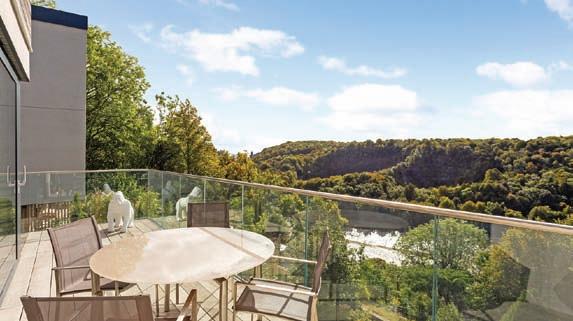


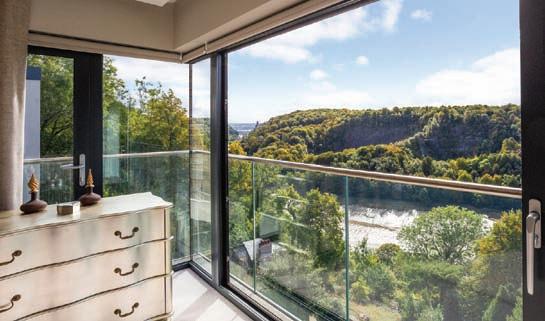



Sneyd Park, Bristol | Guide Price £2,500,000 An architecturally stunning and environmentally friendly modern five / six bedroom home with breath taking views of the Avon Gorge, Leigh Woods and the Clifton Suspension bridge on a private and gated development of just two beautiful houses. Stunning modern detached family house | Breath taking views over the Avon Gorge and Clifton Suspension Bridge | Gated development of just two houses | Bespoke Balthaup kitchen | Stunning sitting room with Bridge views | Wrap around south west facing balcony and sun terrace | Underfloor heating throughout | Air source heat pump | Double garage with EV hook up | Offered with no onward chain | EPC B In all circa 3800 sq. ft (353 sq. m)
































 Faux Fur Collar Tiger Print Black Knitted Cardigan, £69.50 • oliverbonas.com
Faux Fur Collar Tiger Print Black Knitted Cardigan, £69.50 • oliverbonas.com

































 Isaac Hernandez and Shiori Kase in Tamara Rojo's Raymonda by English National Ballet © Johan Persson
Precious Adams as Sister Clemence in Tamara Rojo's Raymonda by English National Ballet © Johan Persson
Isaac Hernandez and Shiori Kase in Tamara Rojo's Raymonda by English National Ballet © Johan Persson
Precious Adams as Sister Clemence in Tamara Rojo's Raymonda by English National Ballet © Johan Persson


 • For more information about the Bristol Young City Poet scheme, visit: lyrafest.com/about/young-city-poet
Caleb Parkin is the third Bristol City Poet (2020-2022). He won second prize in the National Poetry Competition 2016, the Winchester Poetry Prize 2017 and various other shortlists. His educational work is extensive, tutoring for Poetry Society, Poetry School, Cheltenham Festivals, Arvon and First Story
Credit: Sam Cavender
• For more information about the Bristol Young City Poet scheme, visit: lyrafest.com/about/young-city-poet
Caleb Parkin is the third Bristol City Poet (2020-2022). He won second prize in the National Poetry Competition 2016, the Winchester Poetry Prize 2017 and various other shortlists. His educational work is extensive, tutoring for Poetry Society, Poetry School, Cheltenham Festivals, Arvon and First Story
Credit: Sam Cavender
























 Bharti Kher. Photo Jeetin Sharma. © Hauser & Wirth
Bharti Kher. Photo Jeetin Sharma. © Hauser & Wirth




 Consummate joy and a Sisyphean task, 2019. Wood, copper, steel, red jasper stone, 247×66.9×200 cm © Bharti Kher
The Chimera 4 Bharti Kher 2016. Wax, concrete, plaster, hessian fibre, brass. © Bharti Kher
Consummate joy and a Sisyphean task, 2019. Wood, copper, steel, red jasper stone, 247×66.9×200 cm © Bharti Kher
The Chimera 4 Bharti Kher 2016. Wax, concrete, plaster, hessian fibre, brass. © Bharti Kher








































































 The annual Movember charity campaign highlights men's health awareness every November, so here, Nuffield Health Bristol Hospital breaks down the five key health issues and their symptoms which you simply can’t afford to ignore.
The annual Movember charity campaign highlights men's health awareness every November, so here, Nuffield Health Bristol Hospital breaks down the five key health issues and their symptoms which you simply can’t afford to ignore.



























































































